目录
1.查找
1.查找的基本概念
1.在哪里找?
2.什么查找?
3.查找成功与否?
4.查找的目的是什么?
5.查找表怎么分类?
6.如何评价查找算法?
7.查找的过程中我们要研究什么?
2.线性表的查找
1.顺序查找
代码示例:
1.顺序查找的改进
代码示例:
2.顺序查找的性能分析与特点
2.折半查找
代码示例:
1.折半查找的性能分析与特点
3.分块查找(索引顺序查找)
1.分块查找性能分析与优缺点
3.树表的查找
1.二叉排序树
1.二叉排序树的存储结构
代码示例:
2.二叉排序树的递归查找
代码示例:
3.二叉排序树的查找分析
平衡二叉树
4.二叉排序数的操作-插入
5.二叉排序树的操作-删除
4.总的代码
1.查找
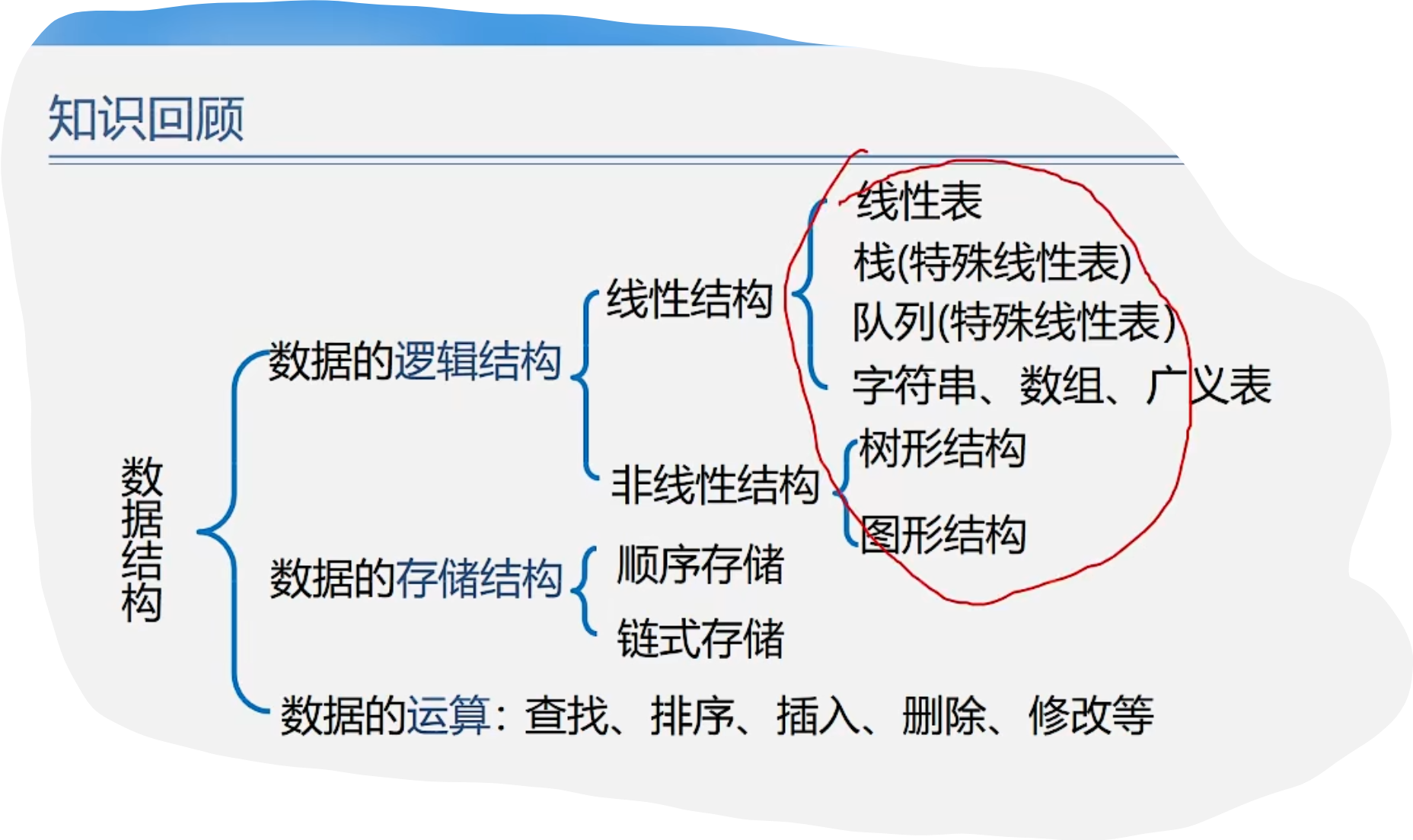
1.查找的基本概念
1.在哪里找?
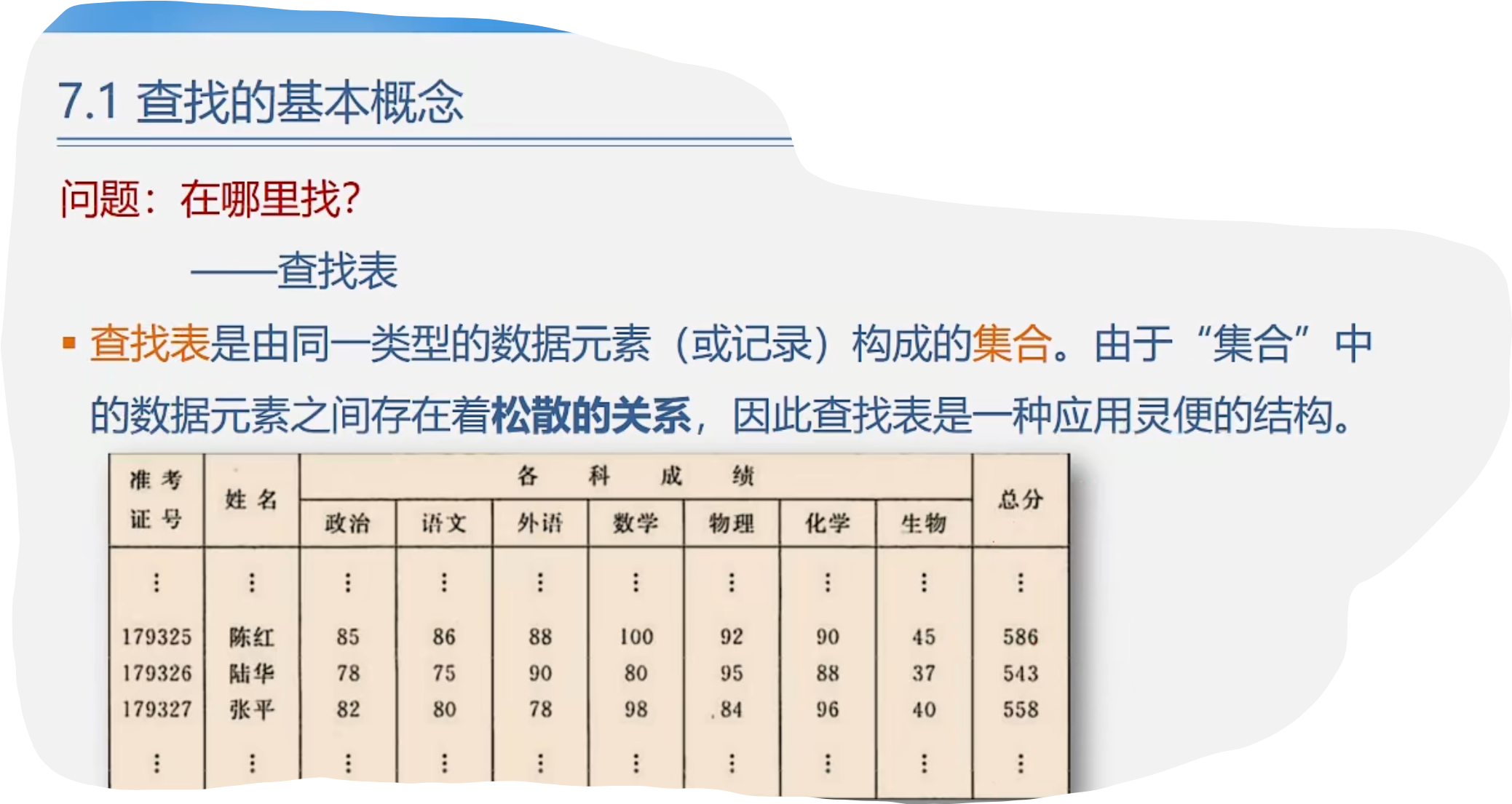
2.什么查找?
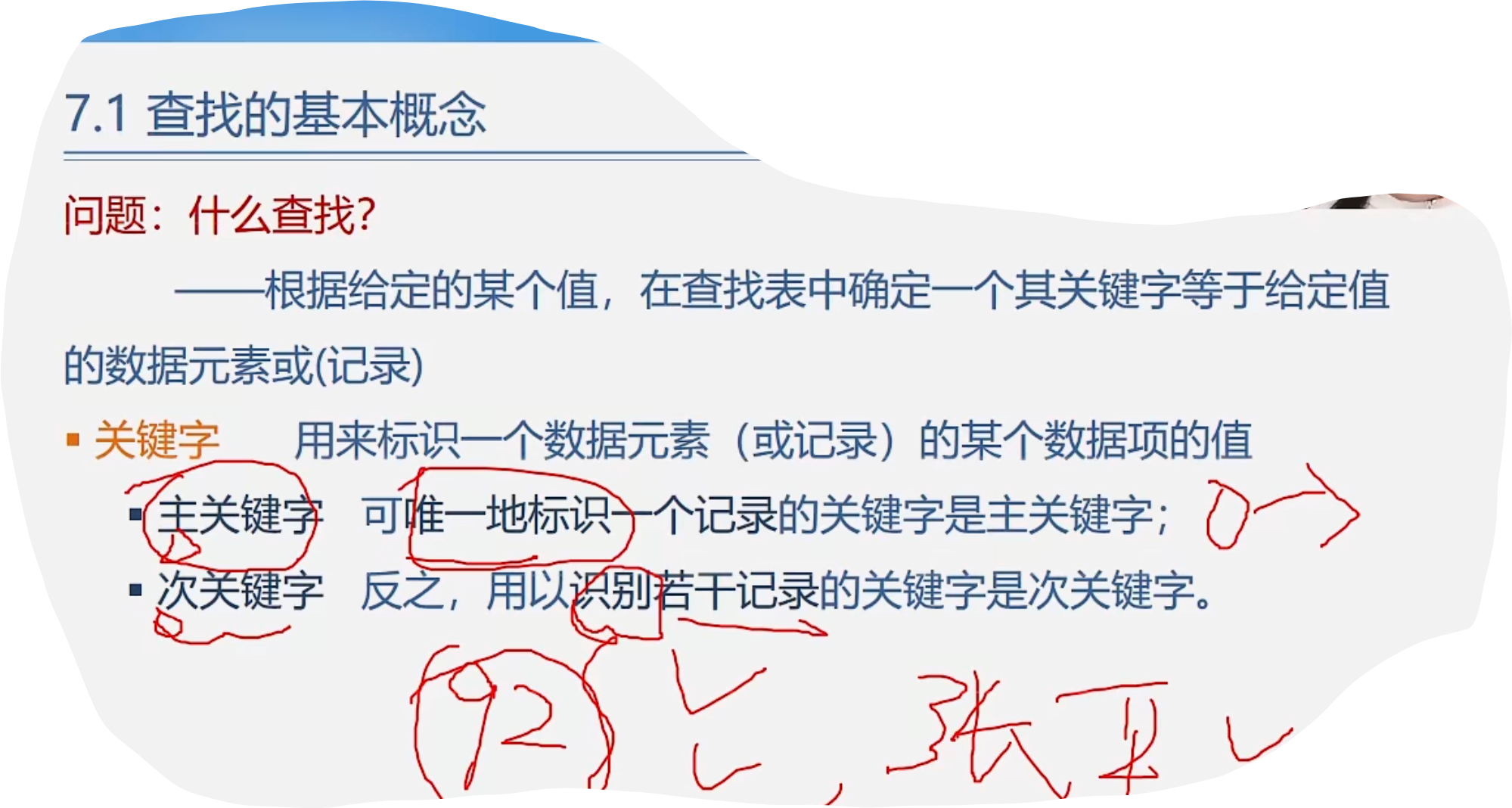
3.查找成功与否?
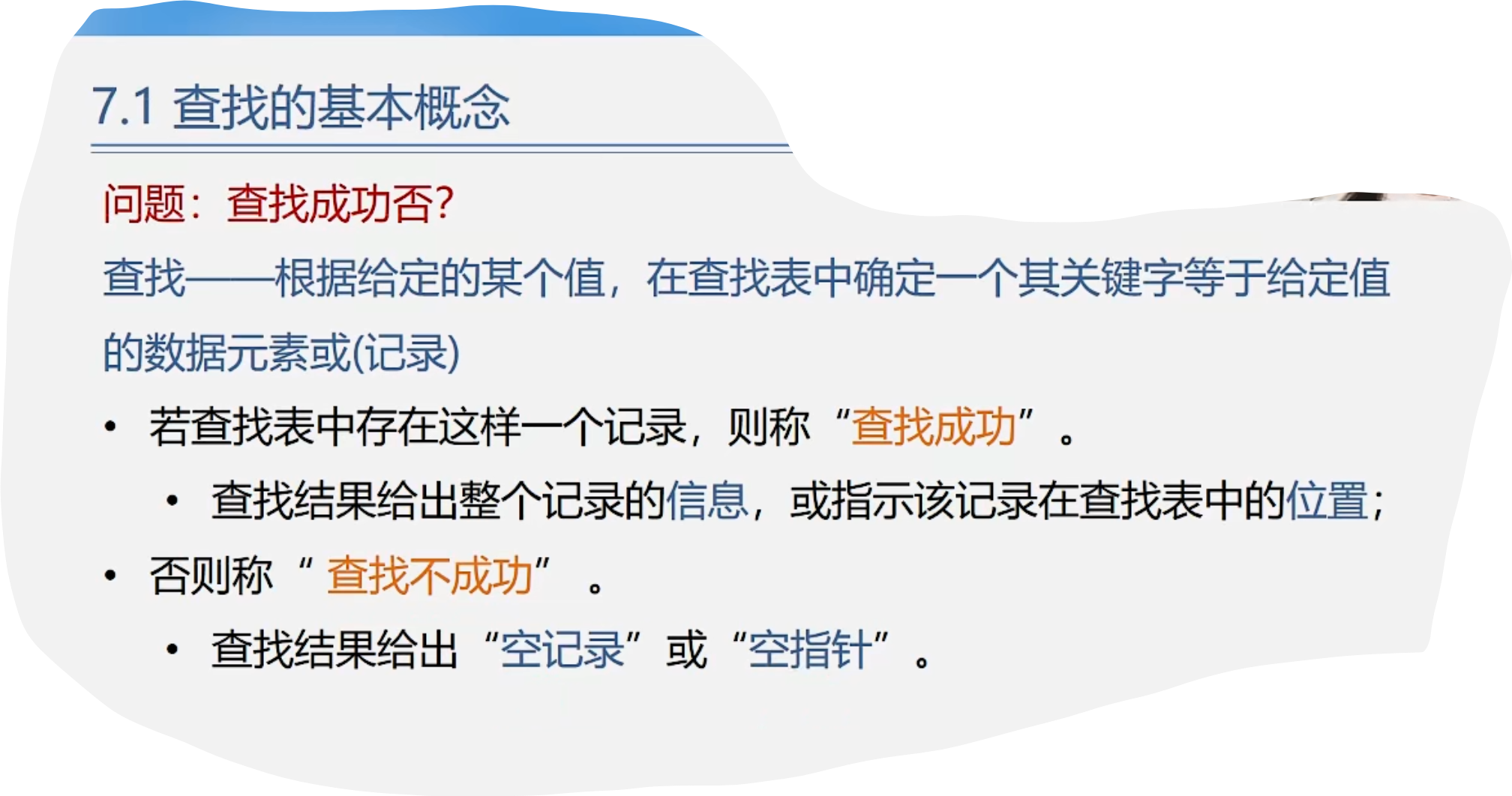
4.查找的目的是什么?
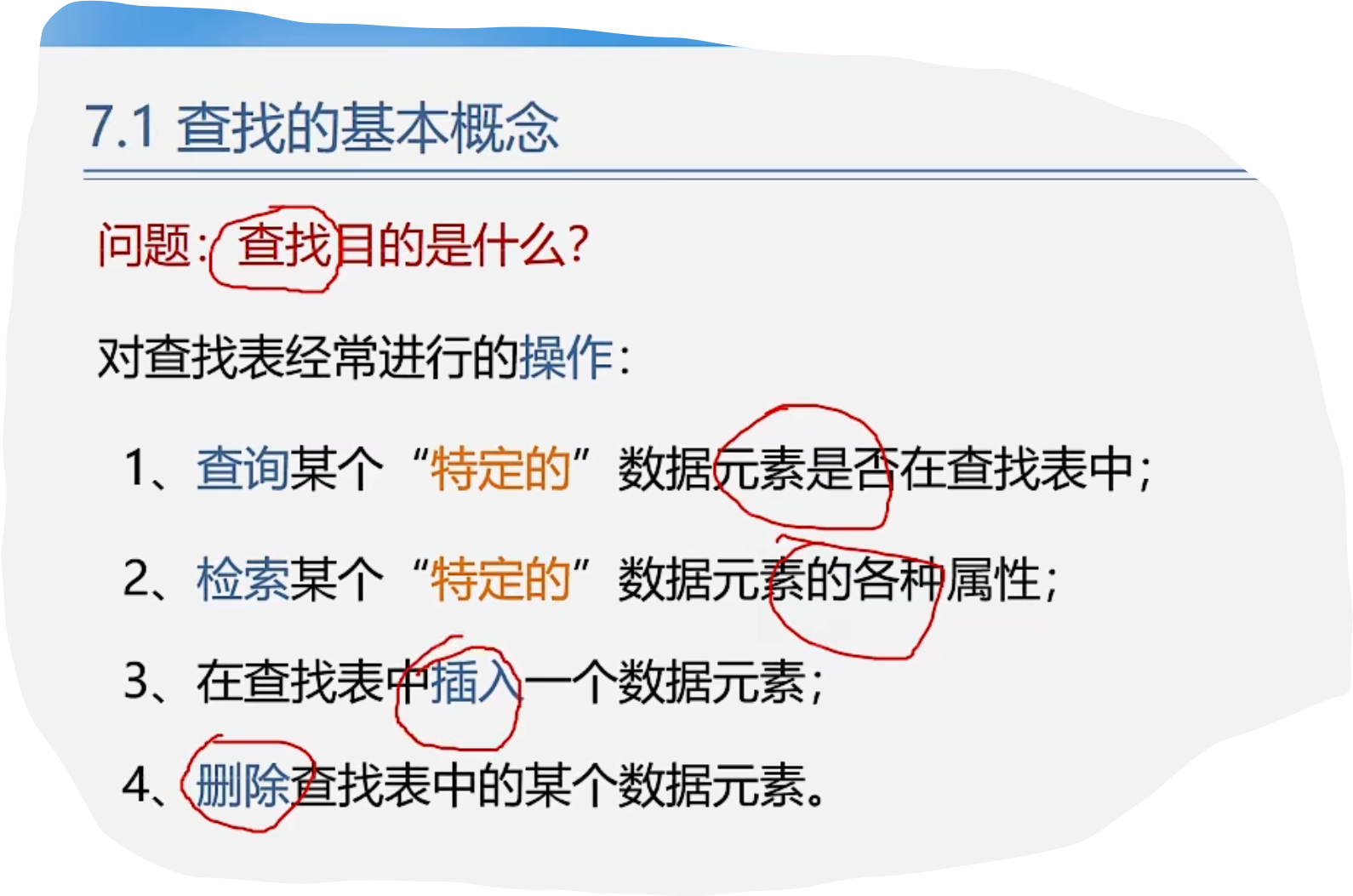
5.查找表怎么分类?
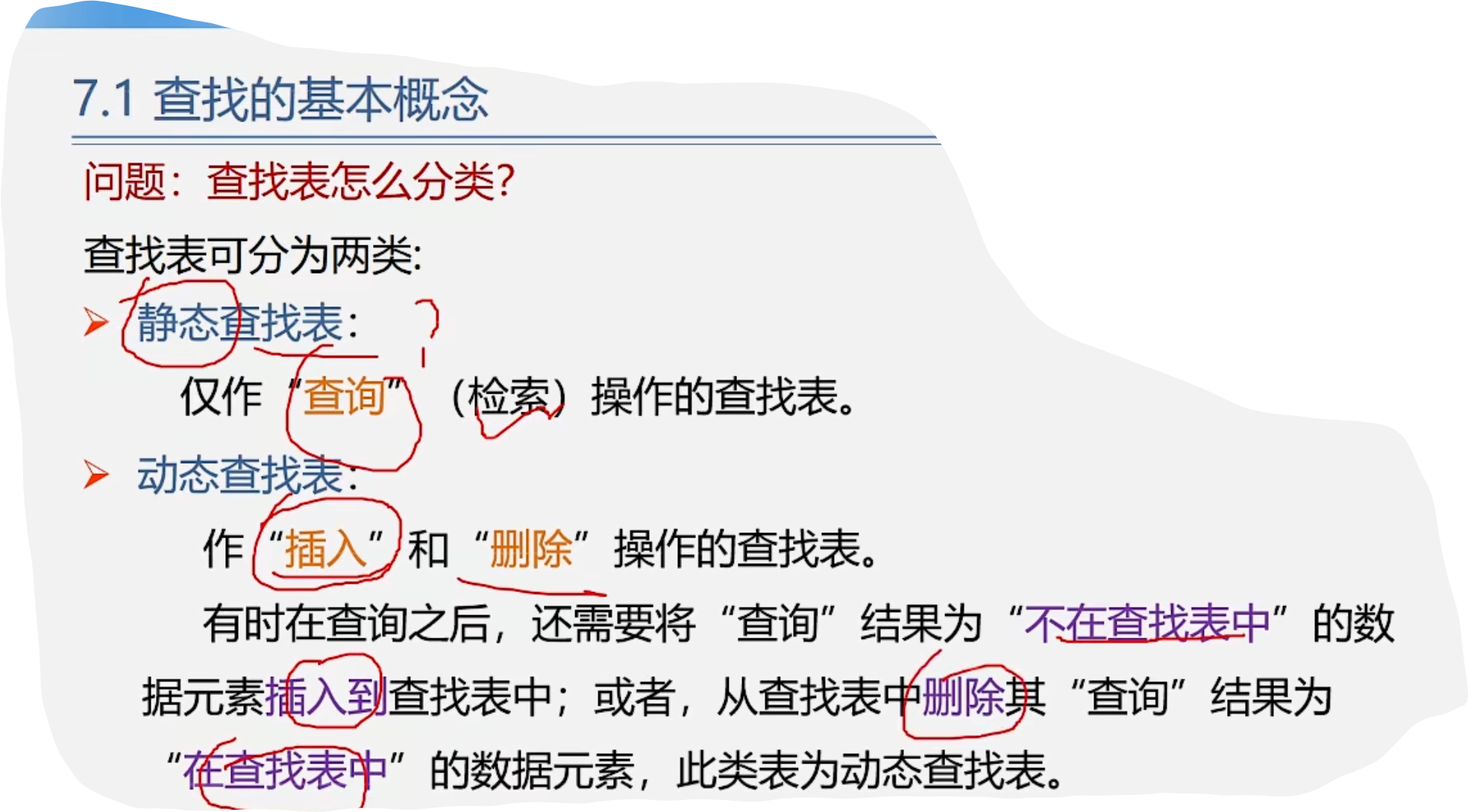
6.如何评价查找算法?
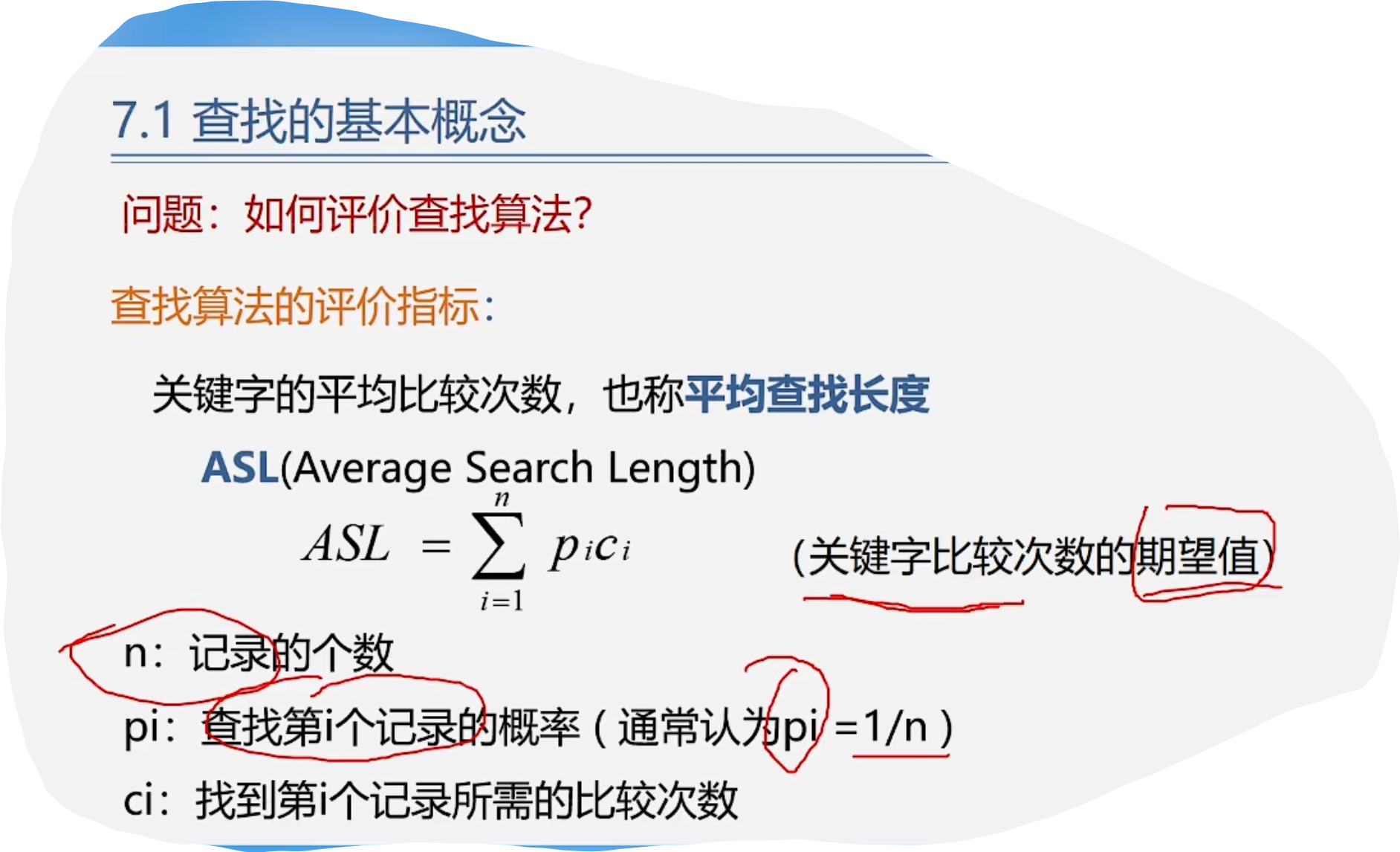
7.查找的过程中我们要研究什么?
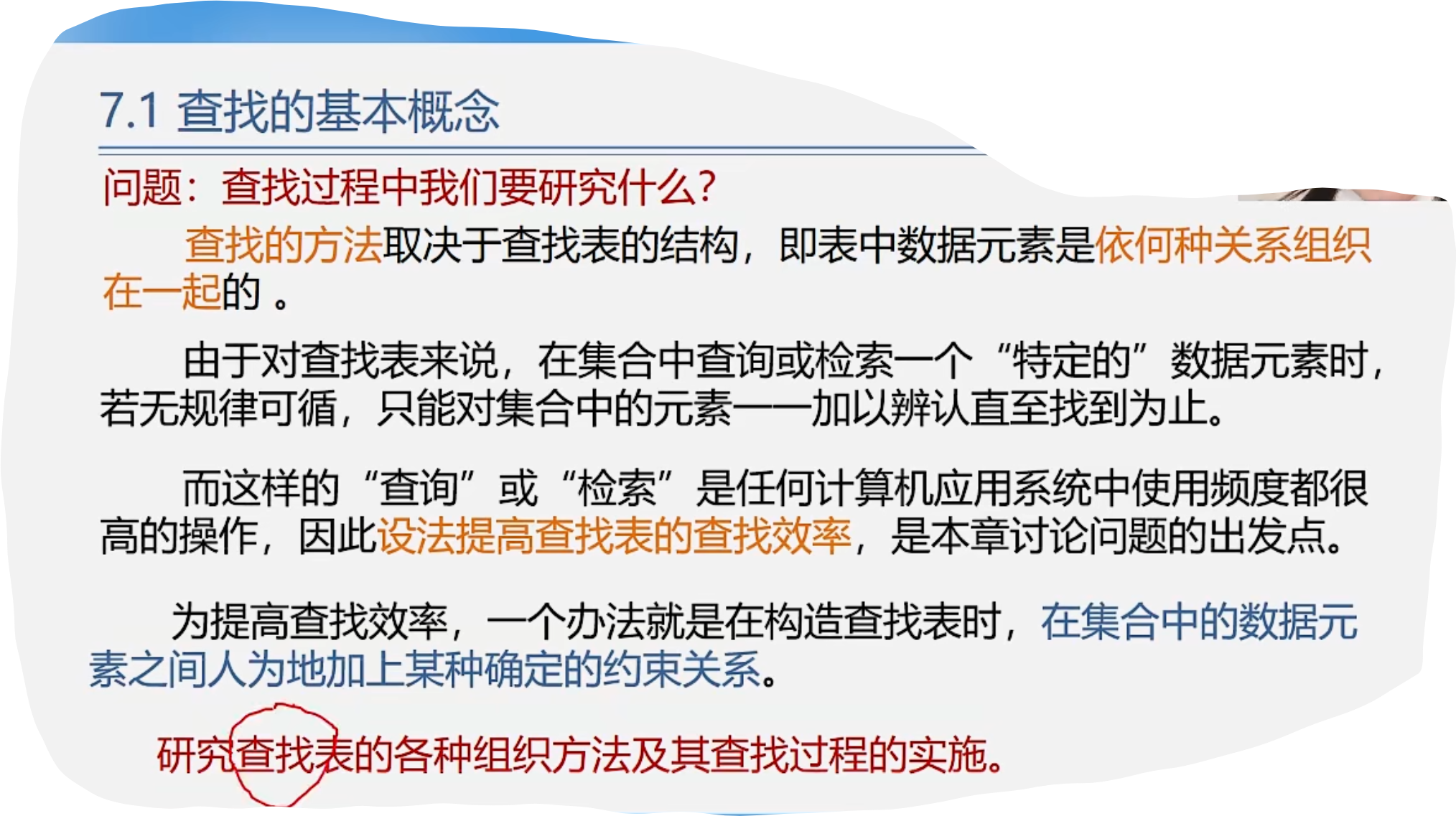
2.线性表的查找
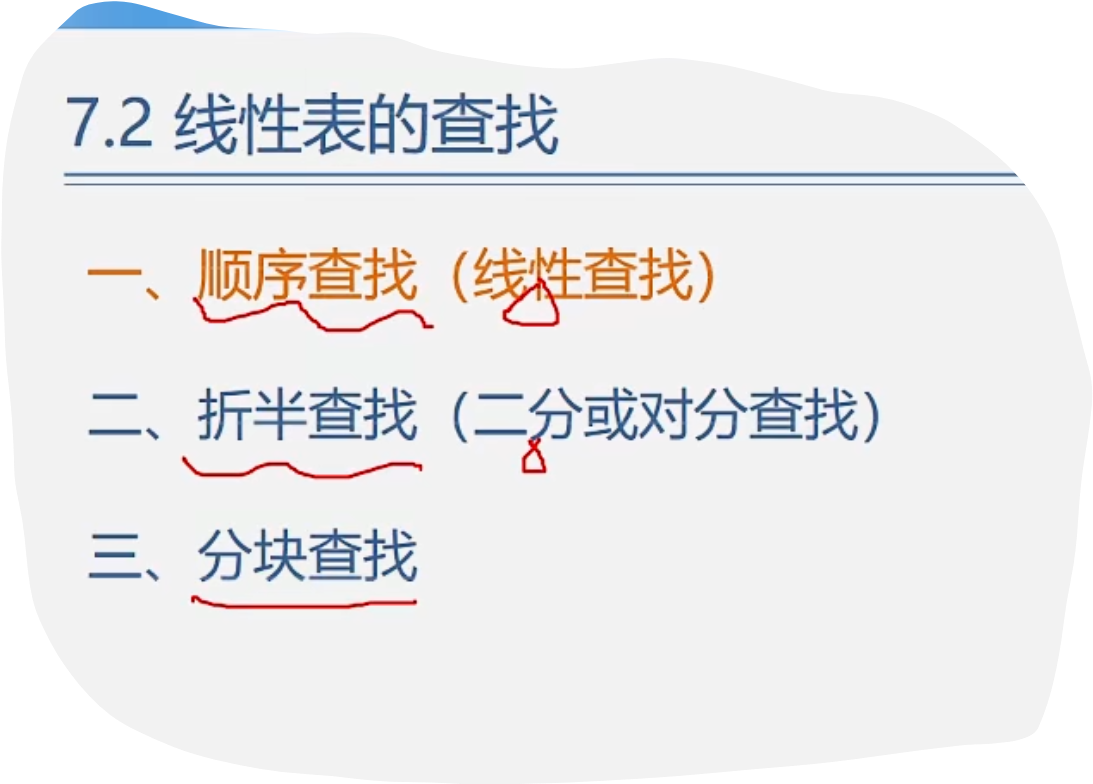
1.顺序查找
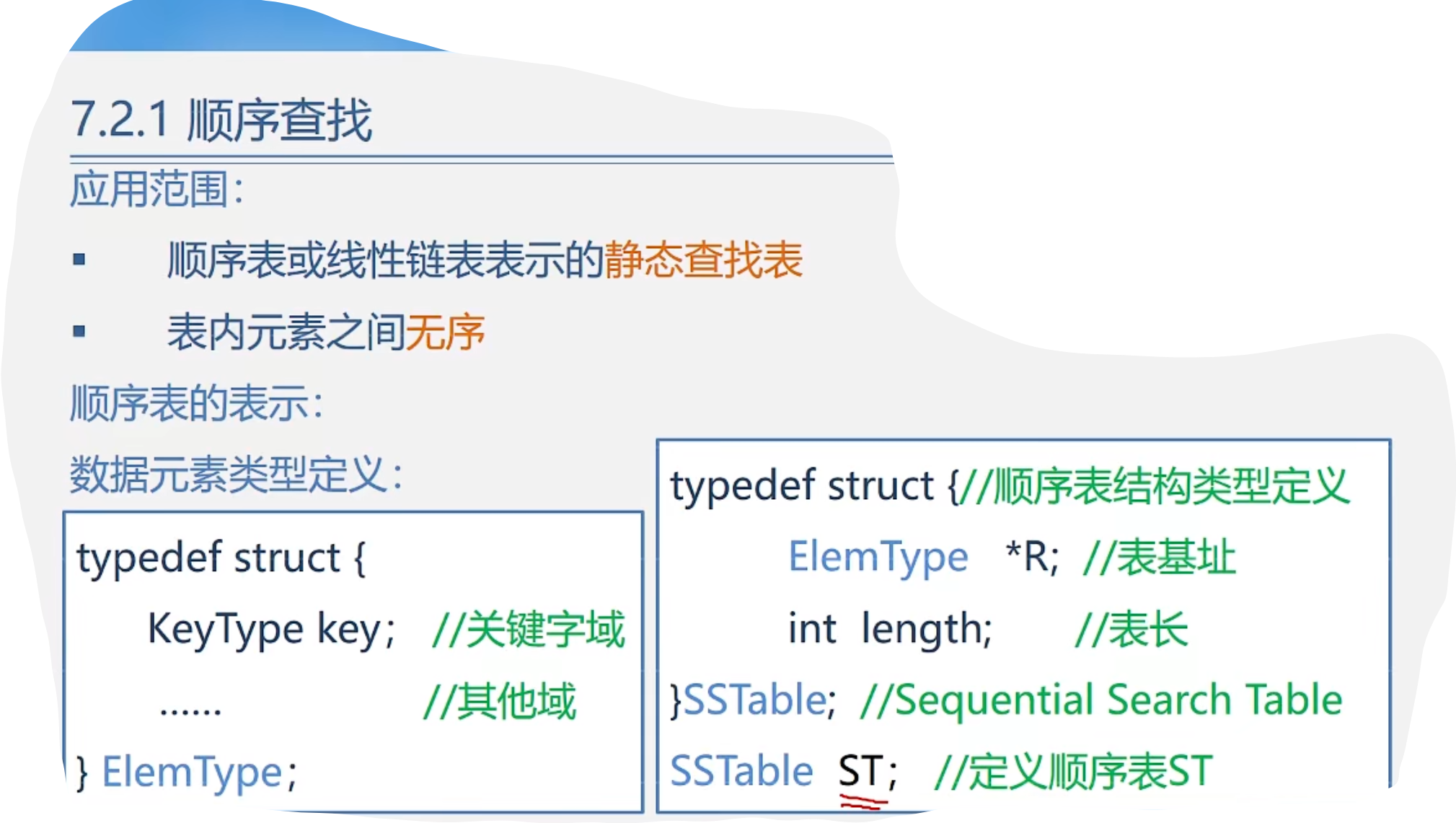
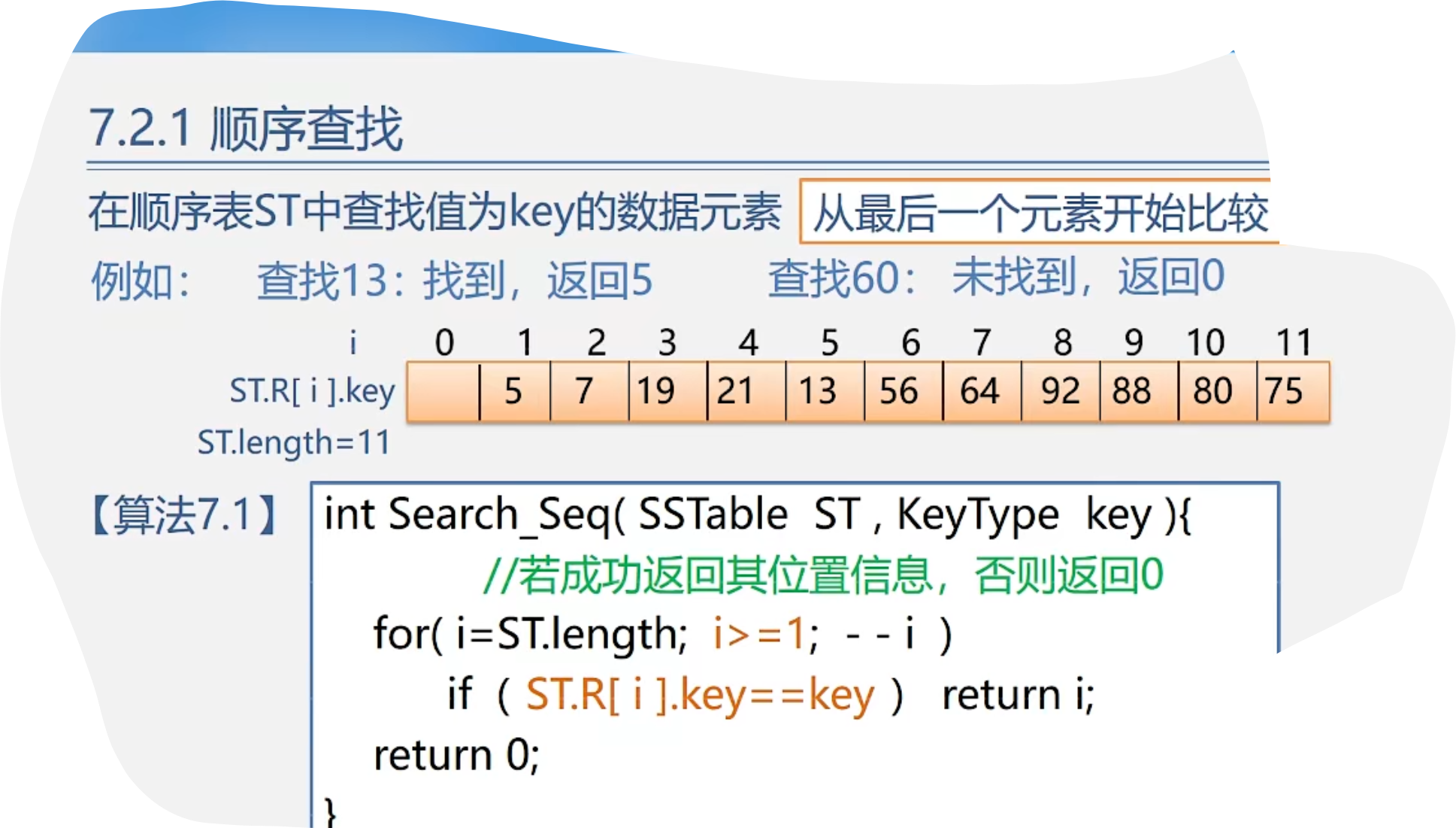
代码示例:
typedef struct {
int key;
}elem;
typedef struct {
elem *r;
int len;
}sstable;
sstable st;
int search_seq(sstable st,int key) {
for(int i = st.len; i >= 1; --i) {
if(st.r[i].key == key) return i;
return 0;
}
}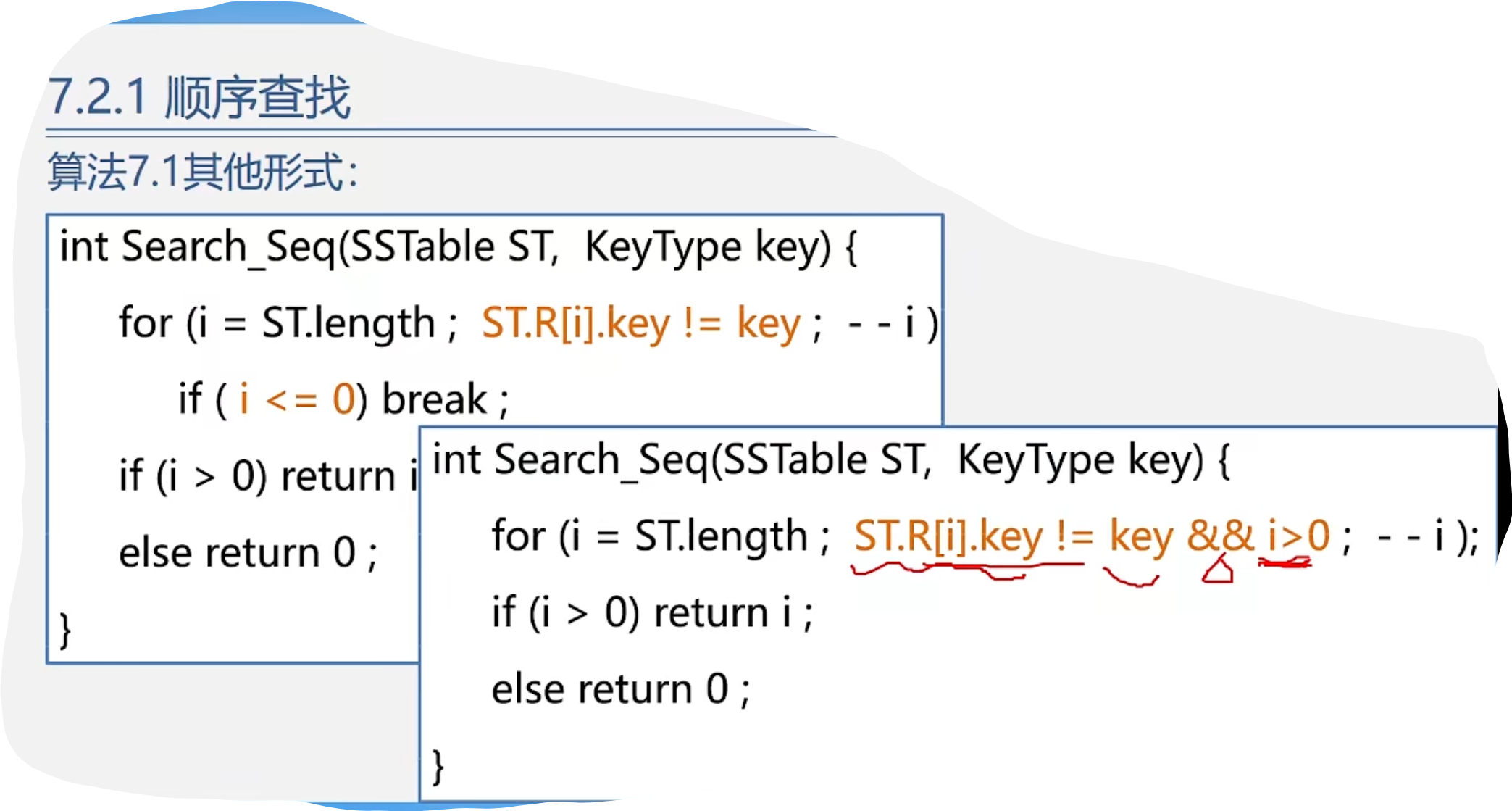
1.顺序查找的改进
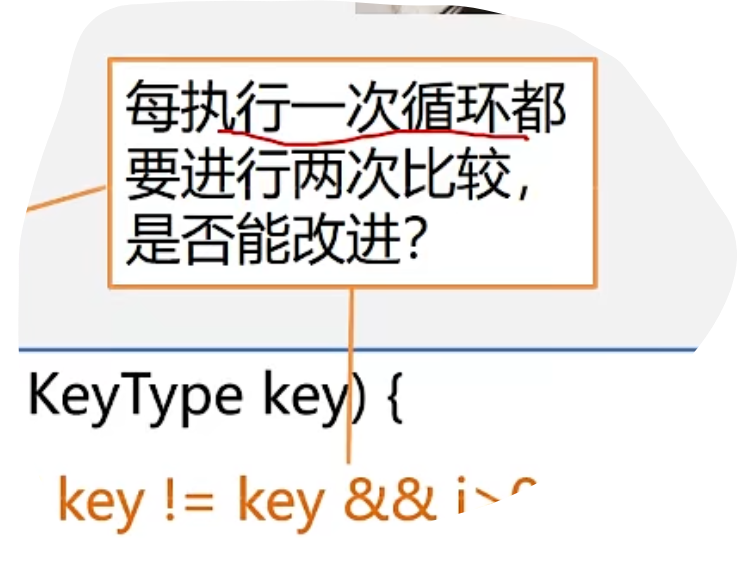
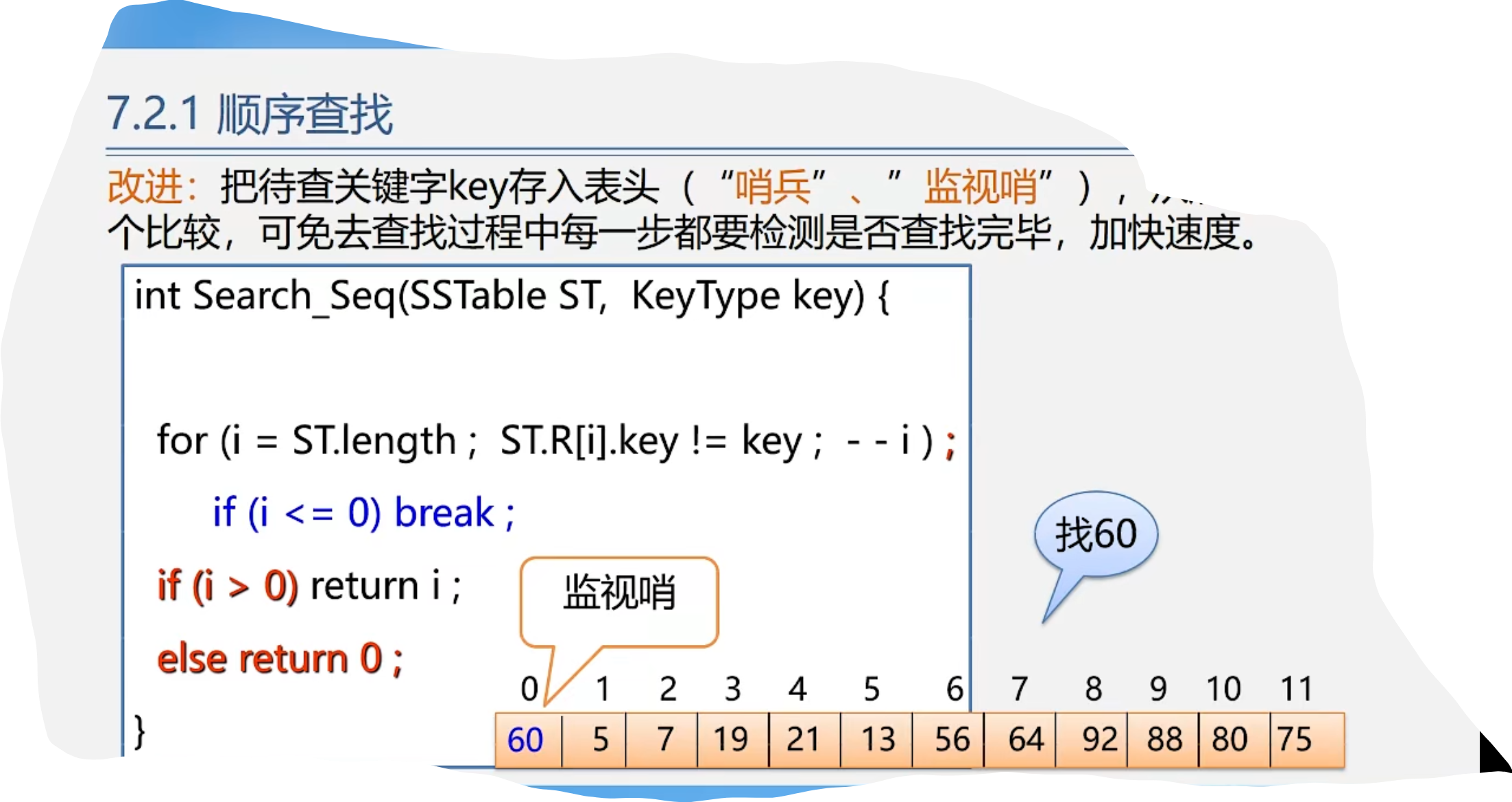
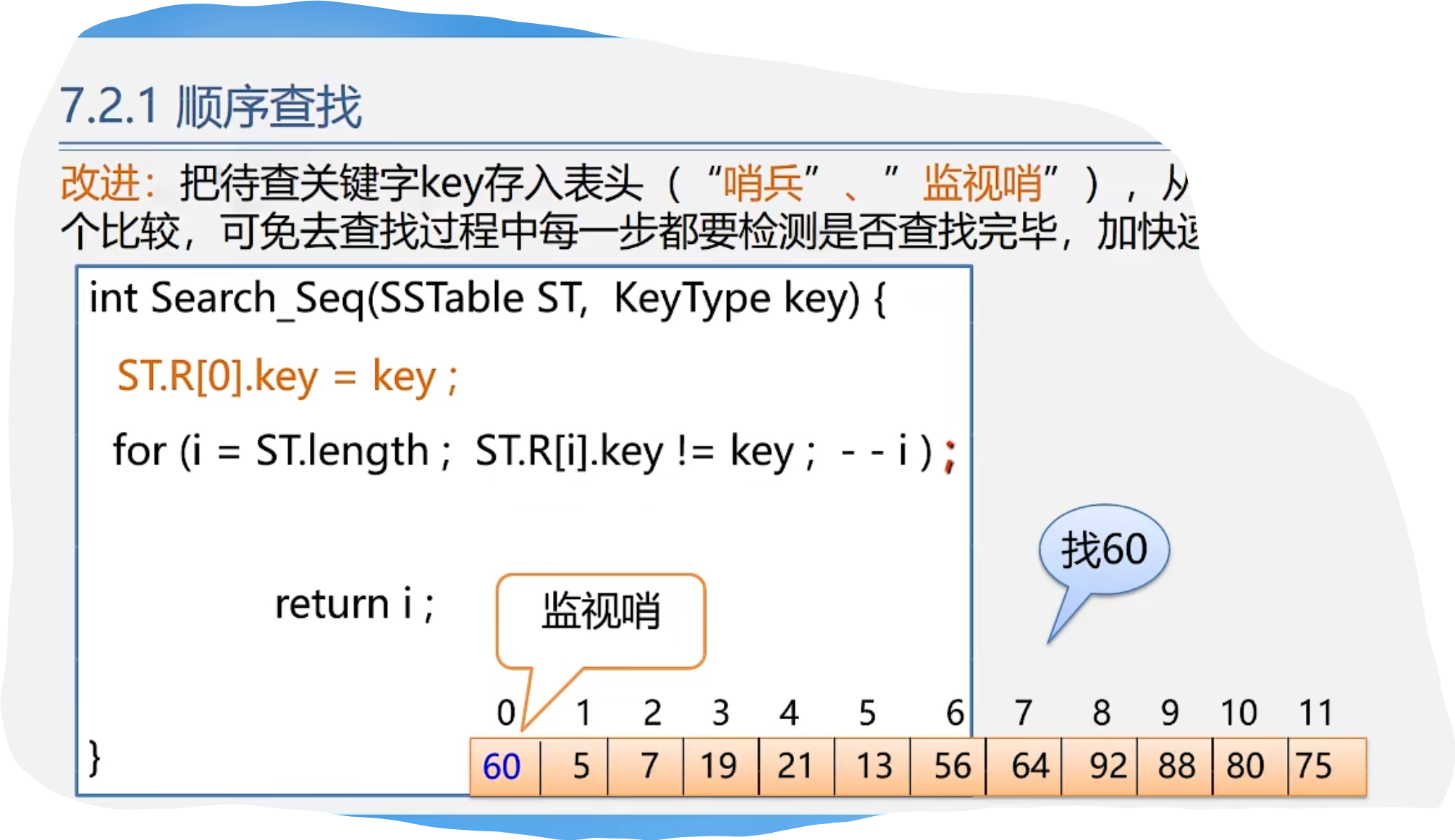
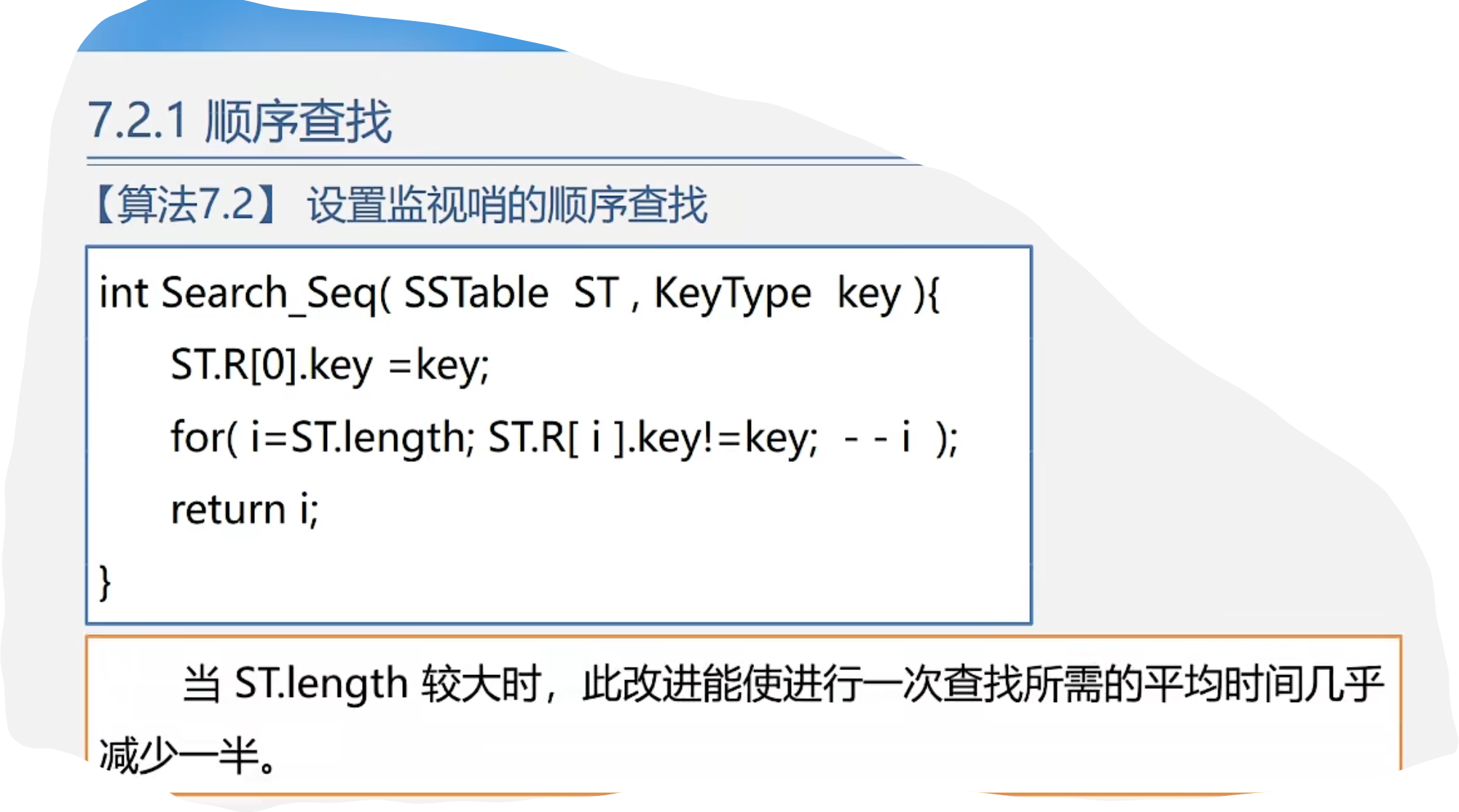
代码示例:
int Search_seq(sstable st,int key) {
st.r[0].key = key;
int i;
for(i = st.len; st.r[i].key != key; --i);
return i;
}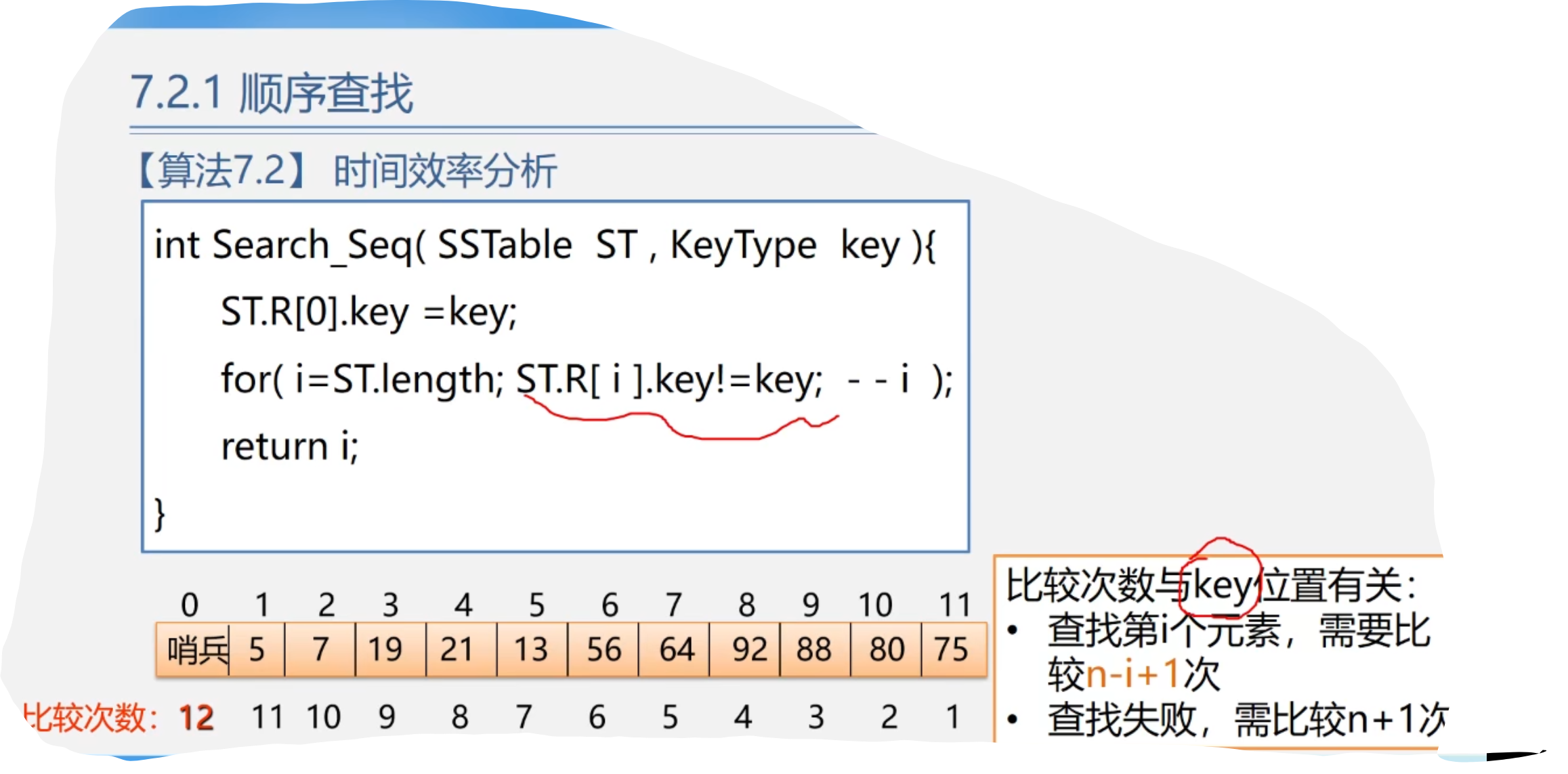
2.顺序查找的性能分析与特点
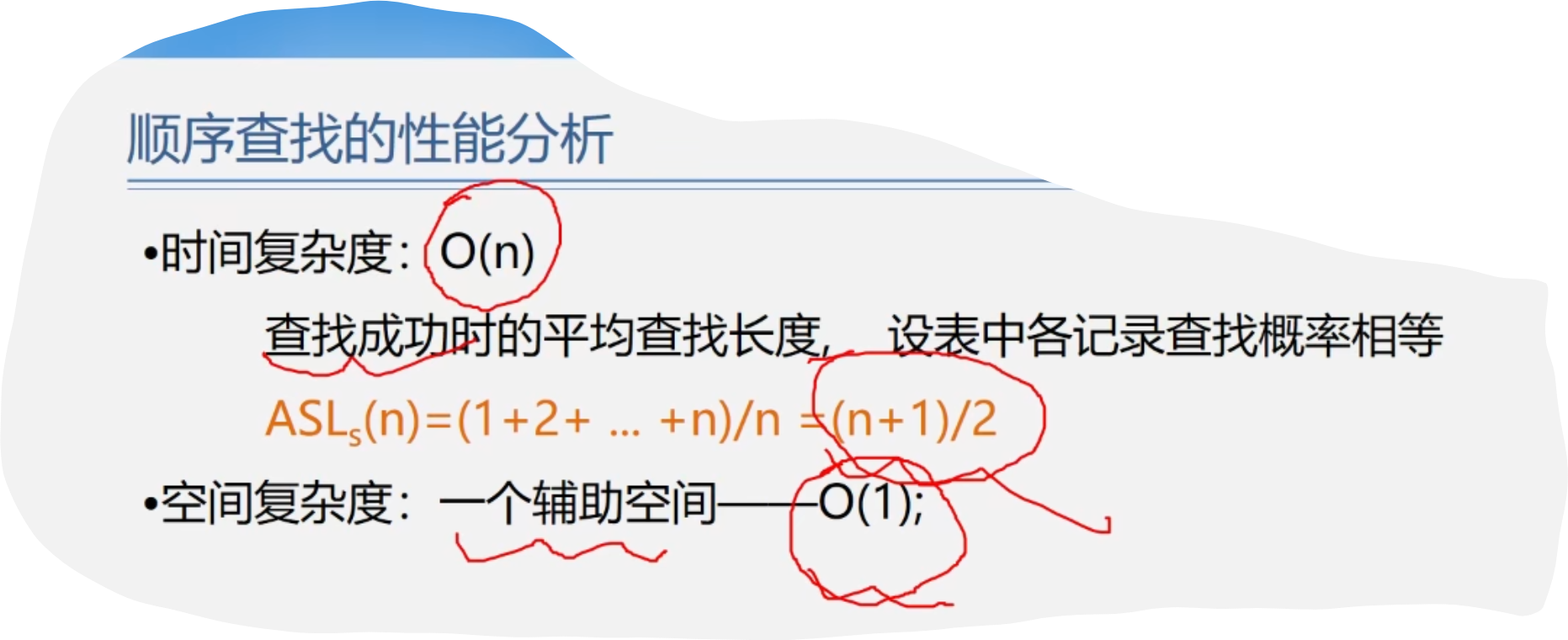
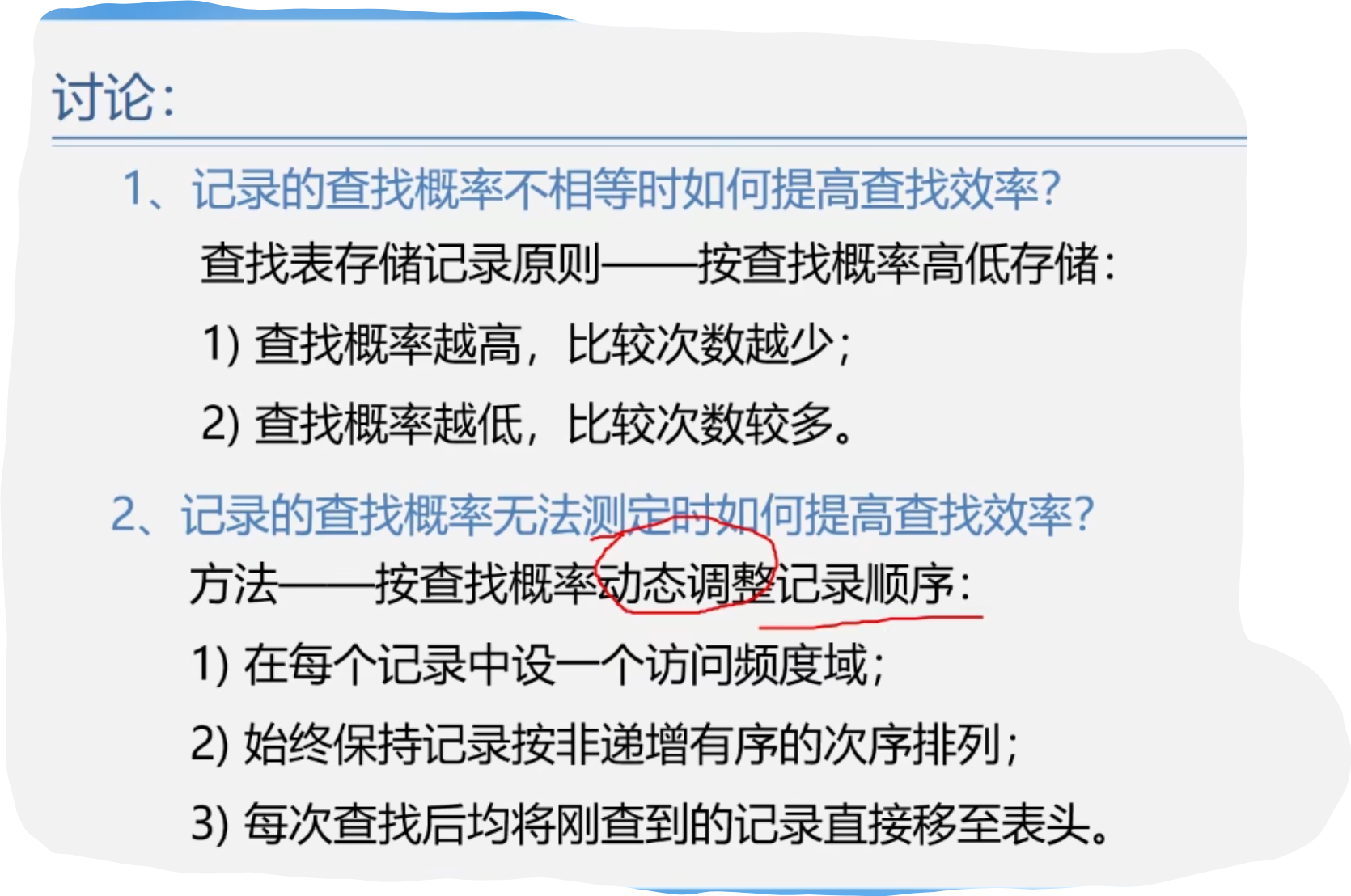
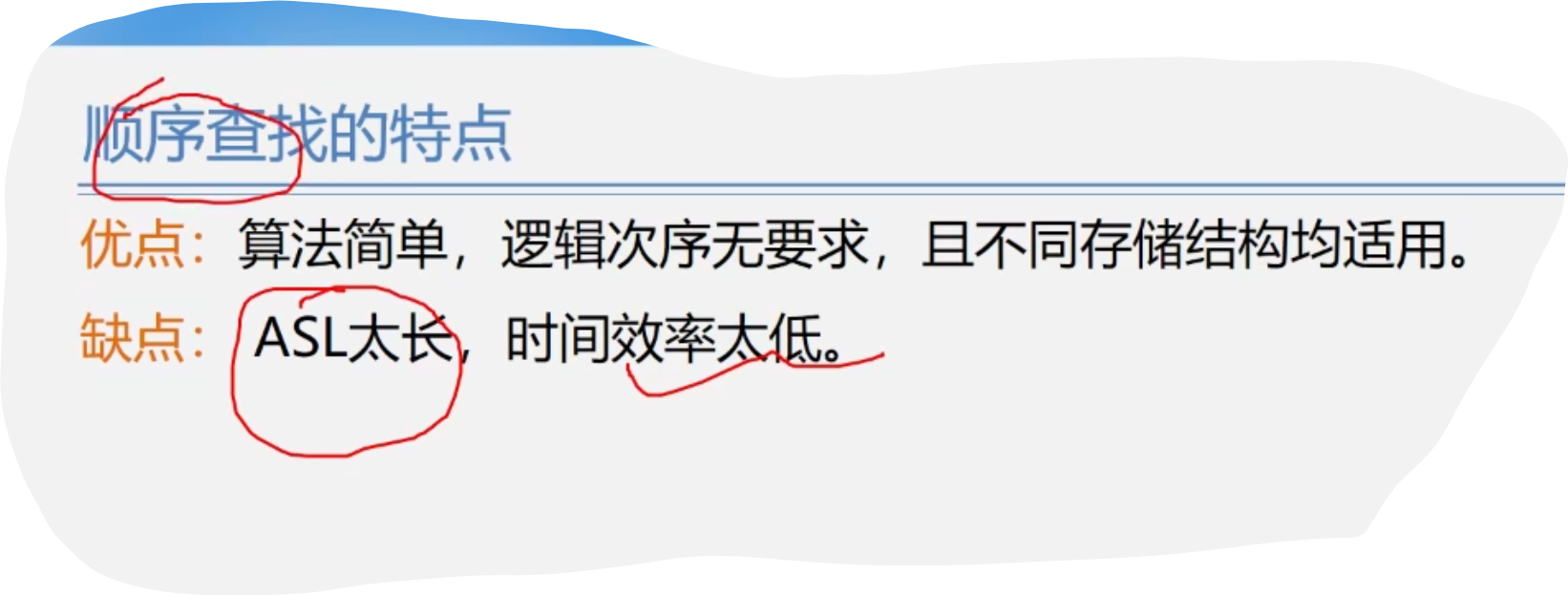
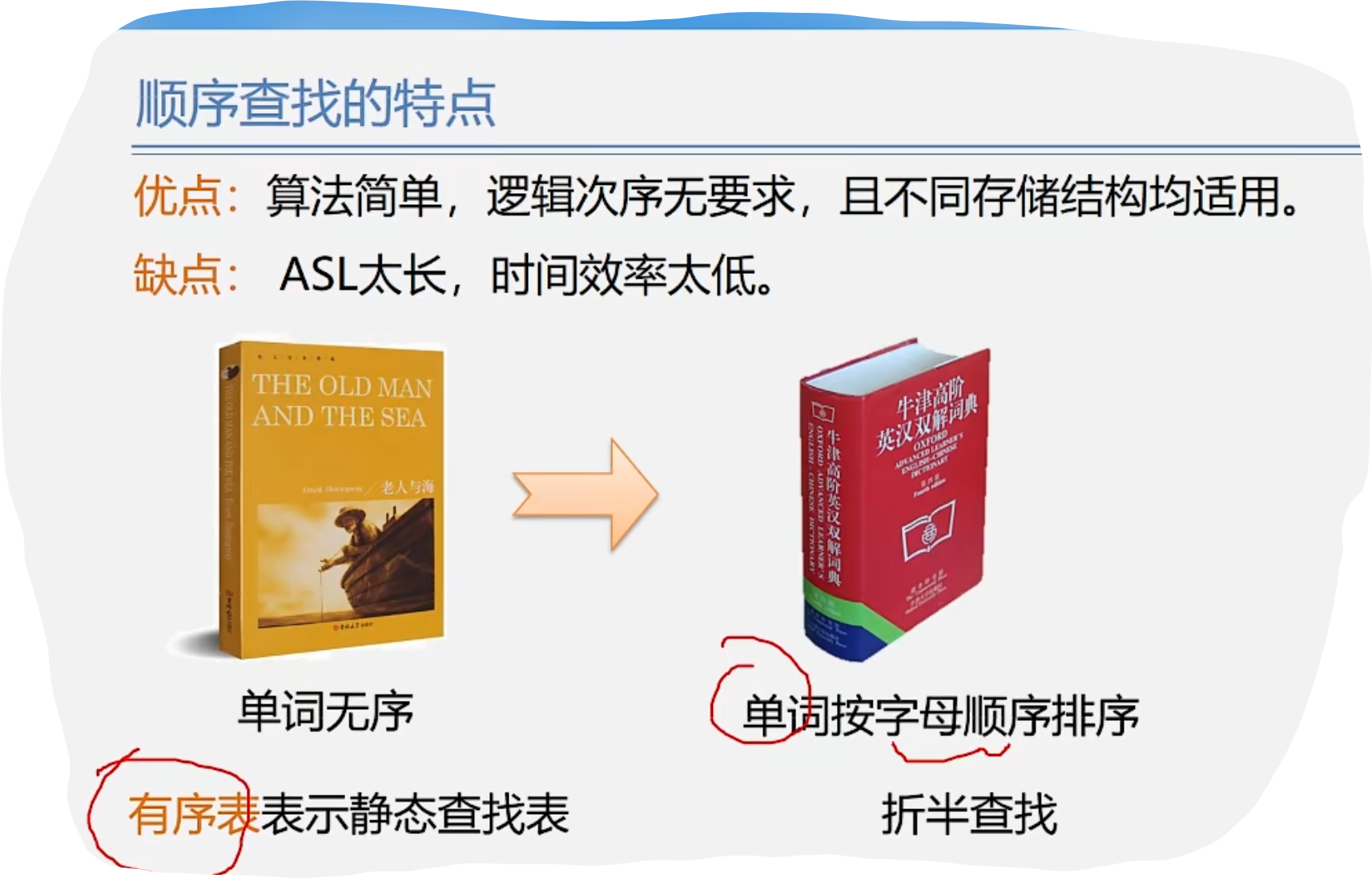
2.折半查找
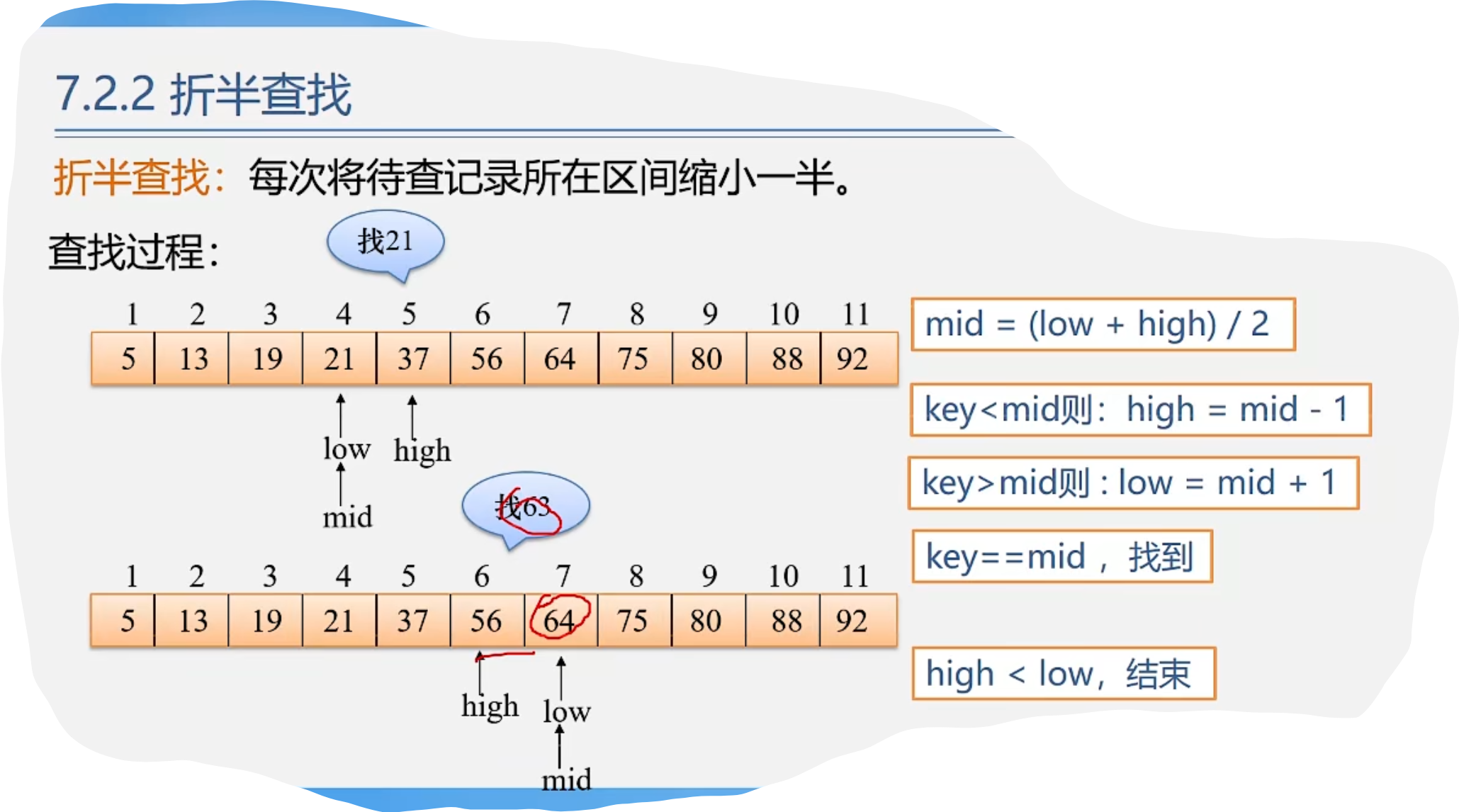
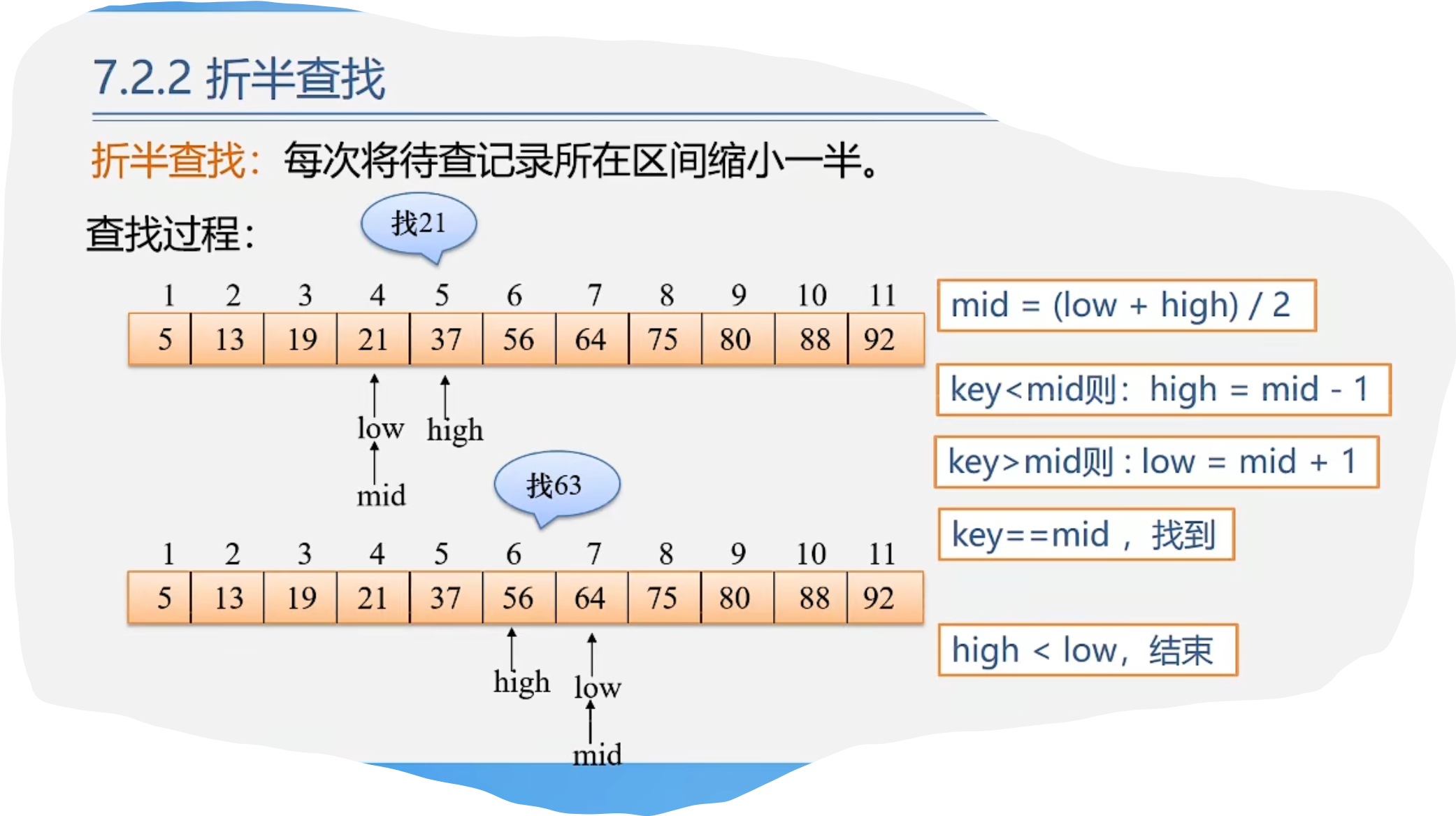
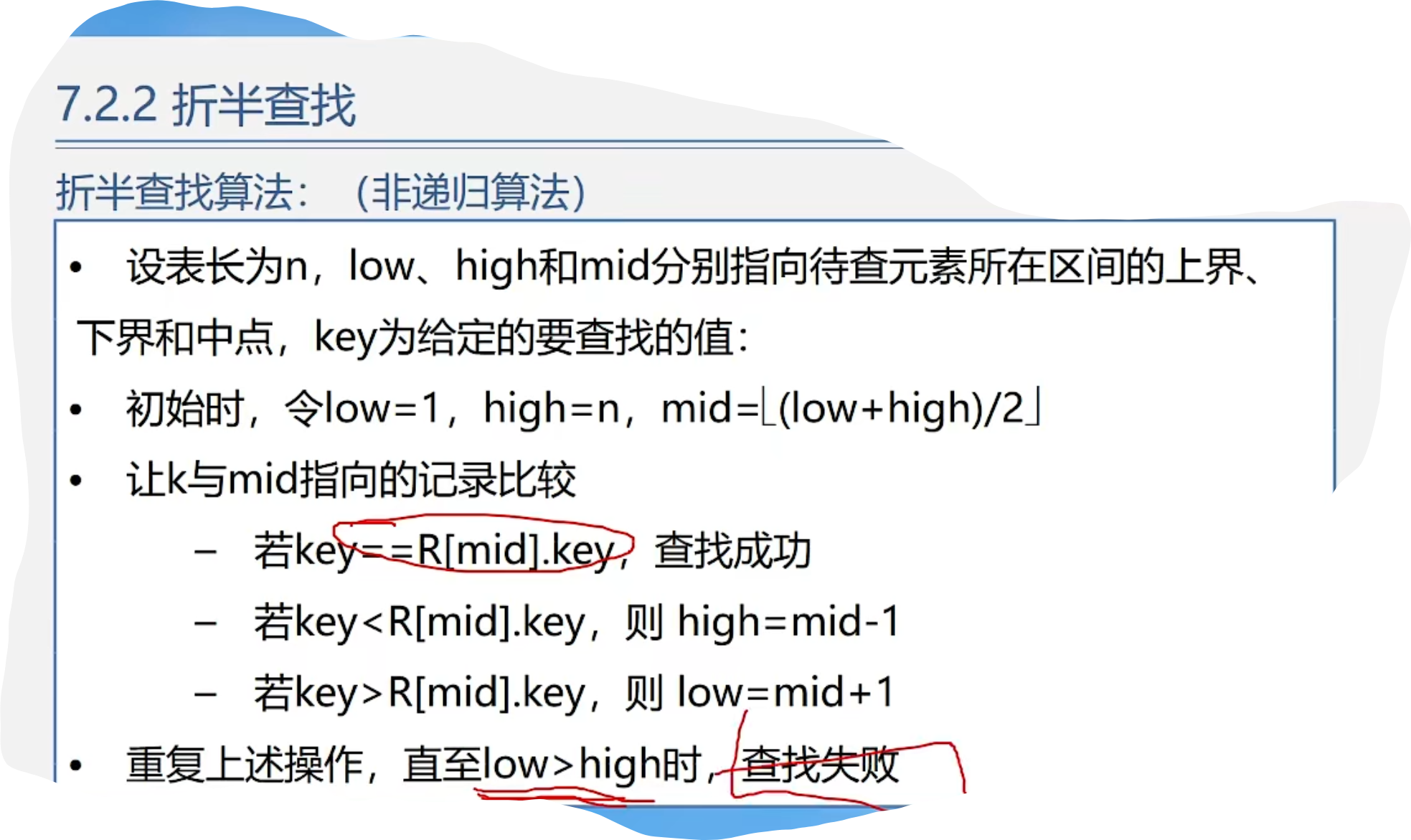
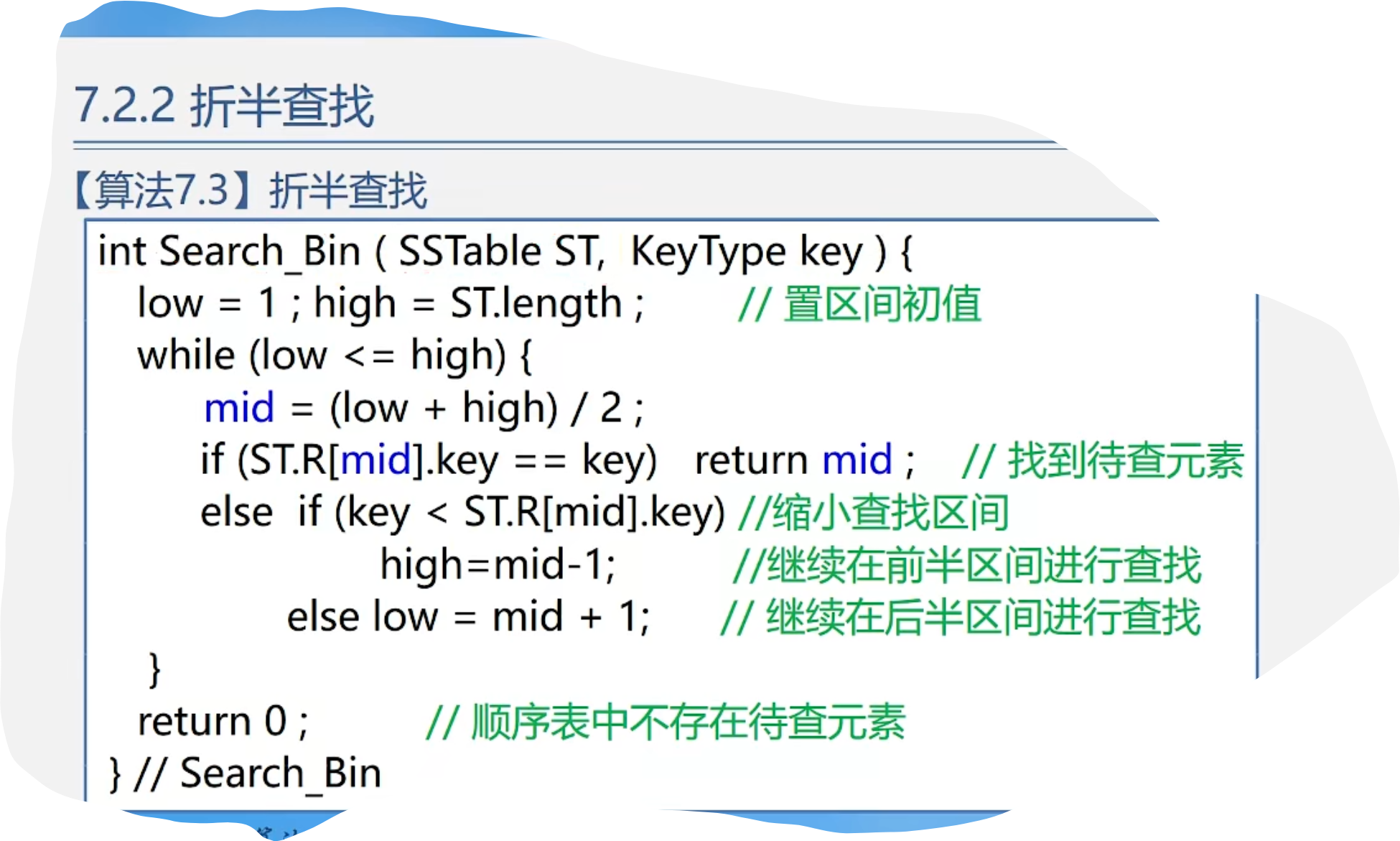
代码示例:
int search_bin(sstable st,int key) {
int low = 1;
int high = st.len;
while(low <= high) {
int mid = (low + high) / 2;
if(st.r[mid].key == key) return mid;
else if(key < st.r[mid].key)
high = mid - 1;
else low = mid + 1;
}
return 0;
}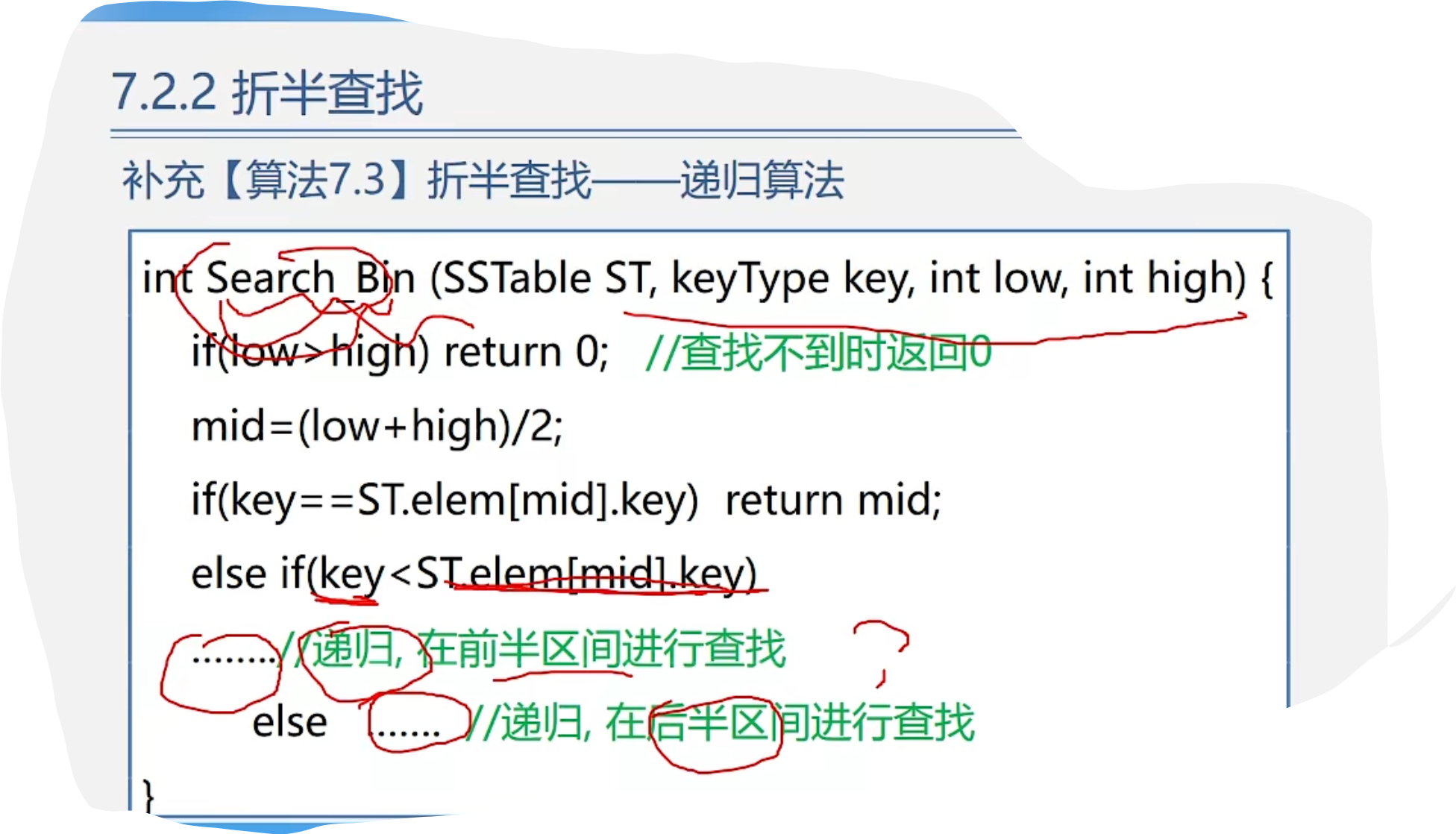
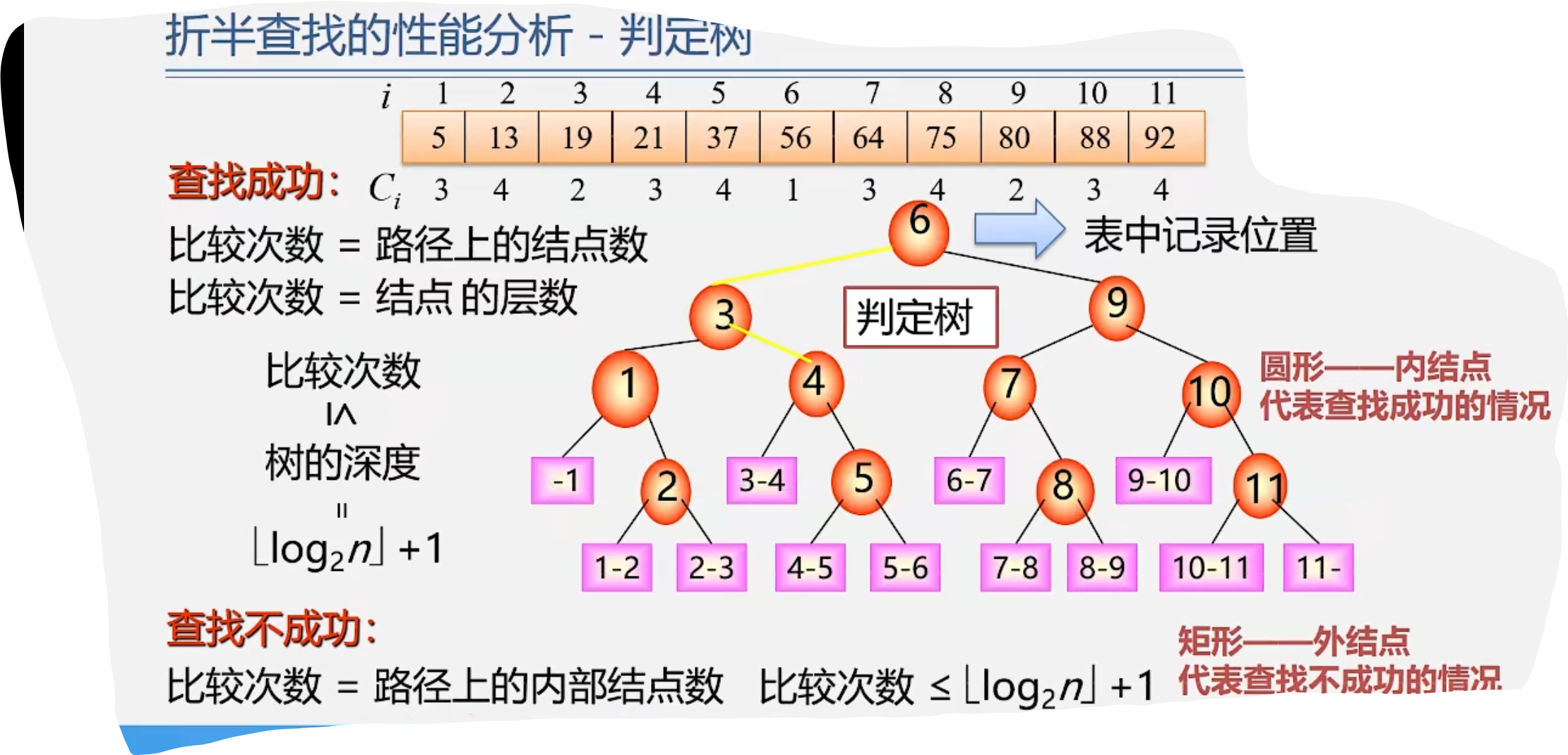
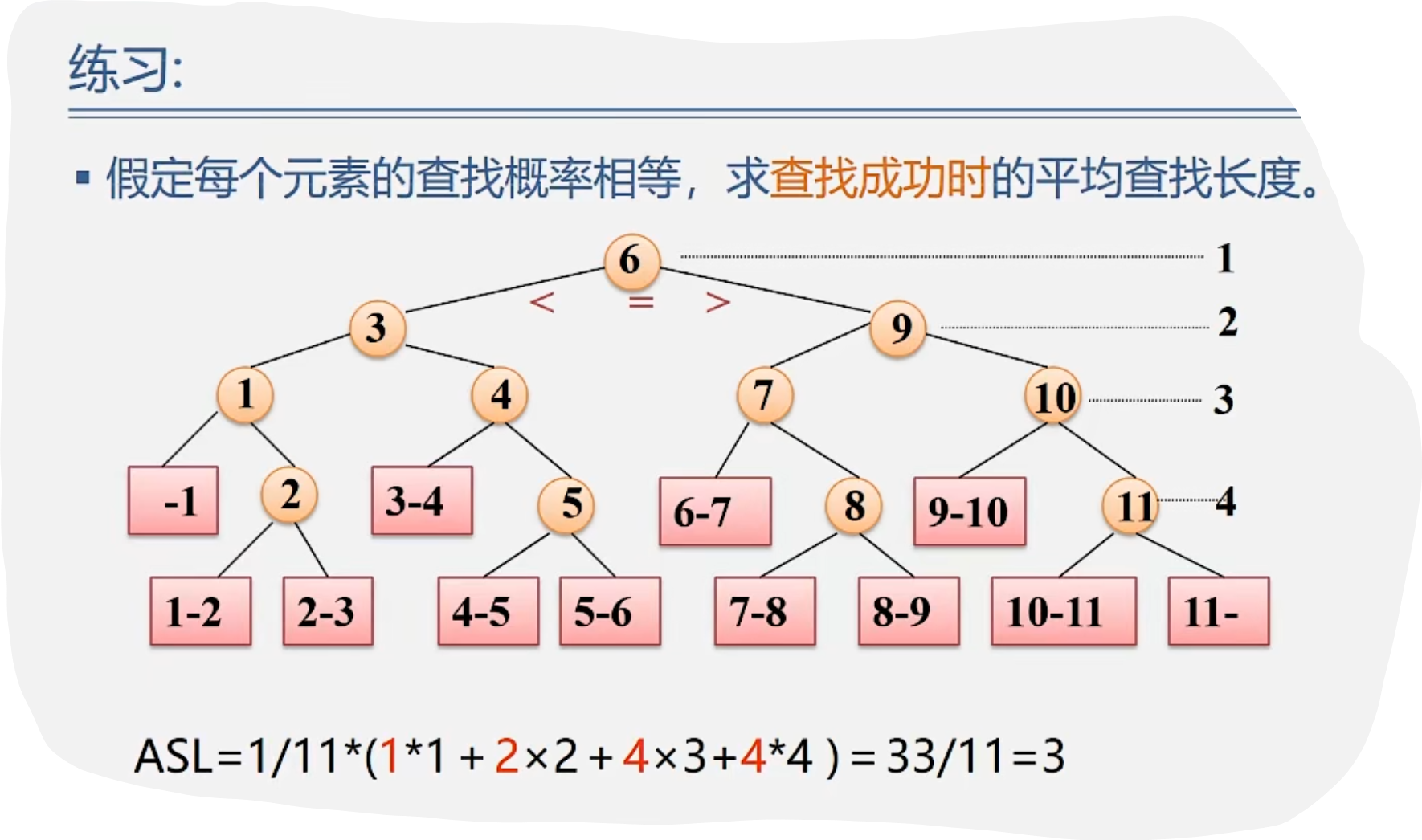
1.折半查找的性能分析与特点
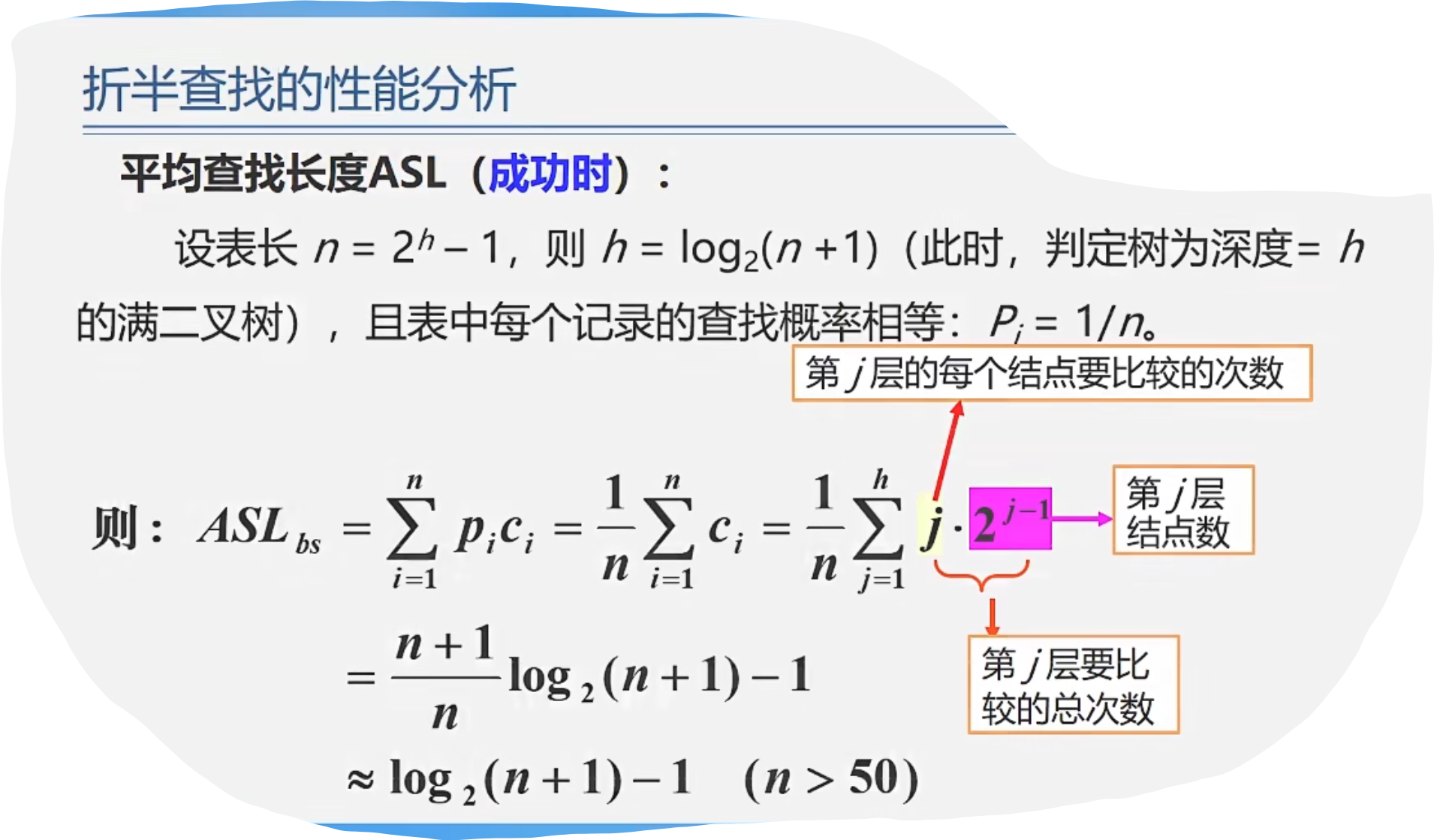
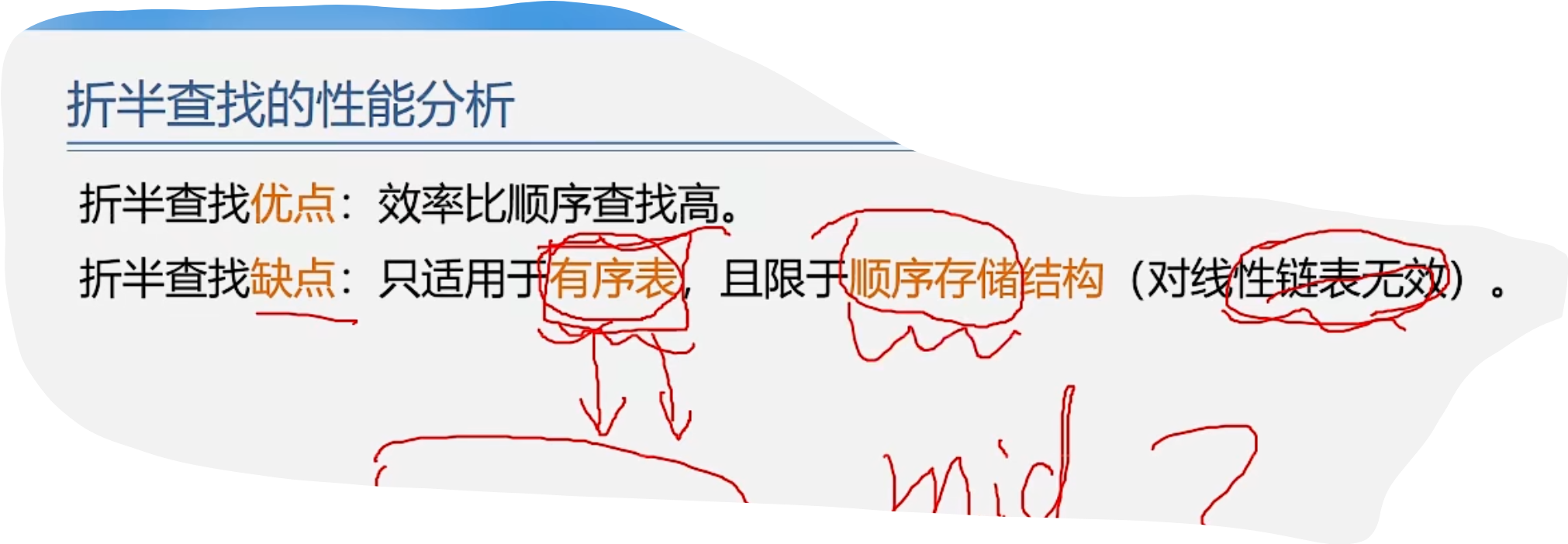

3.分块查找(索引顺序查找)
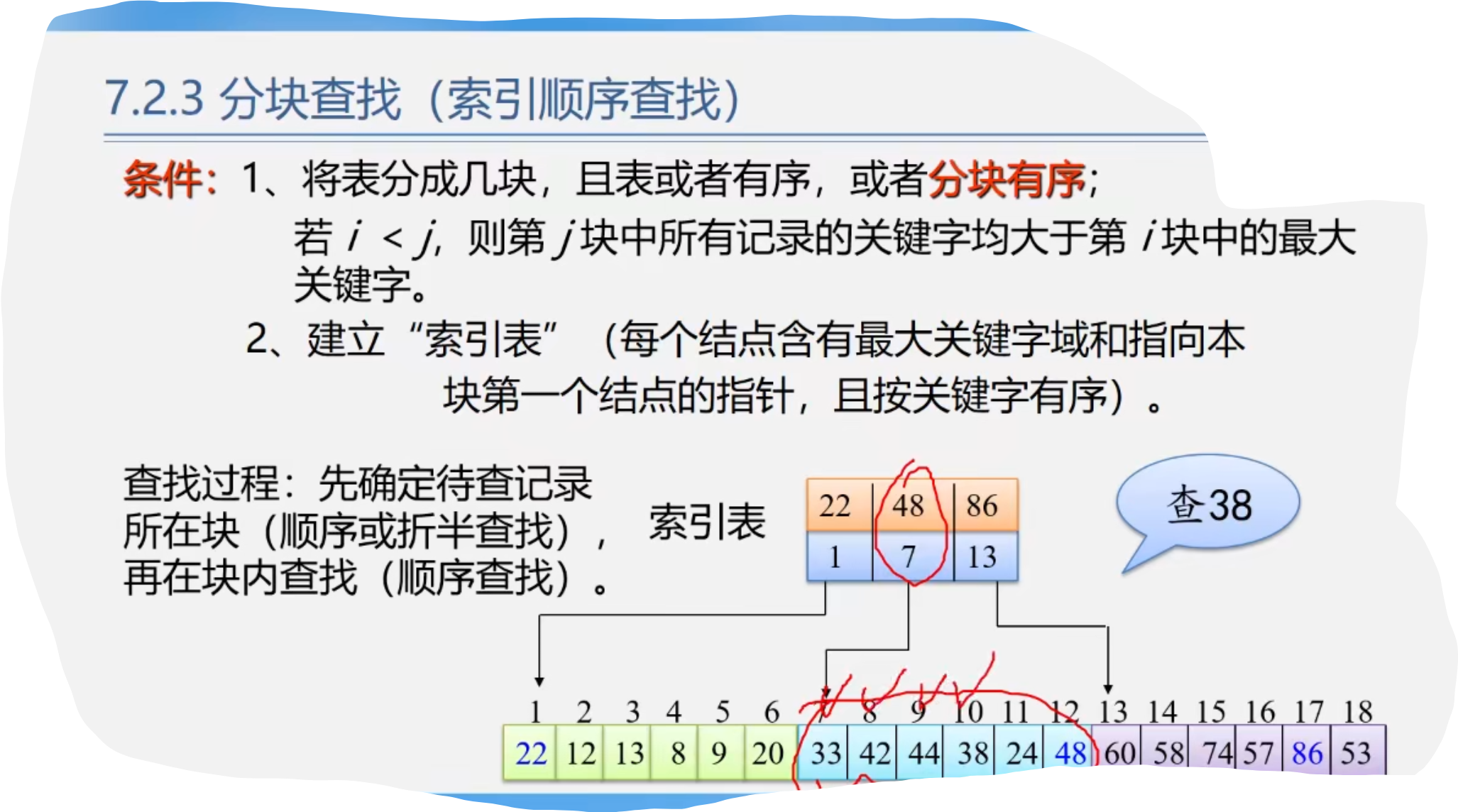
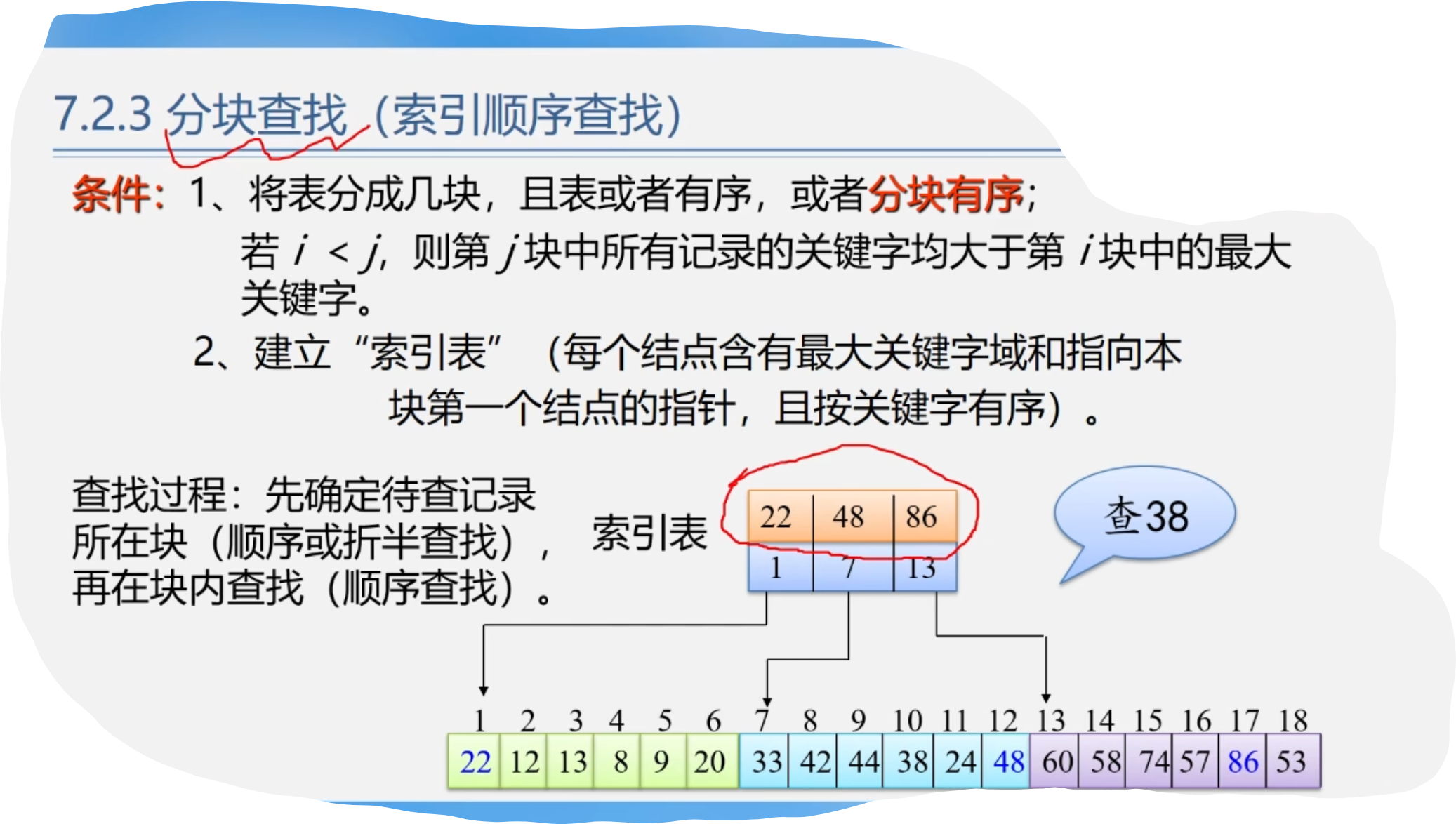
1.分块查找性能分析与优缺点
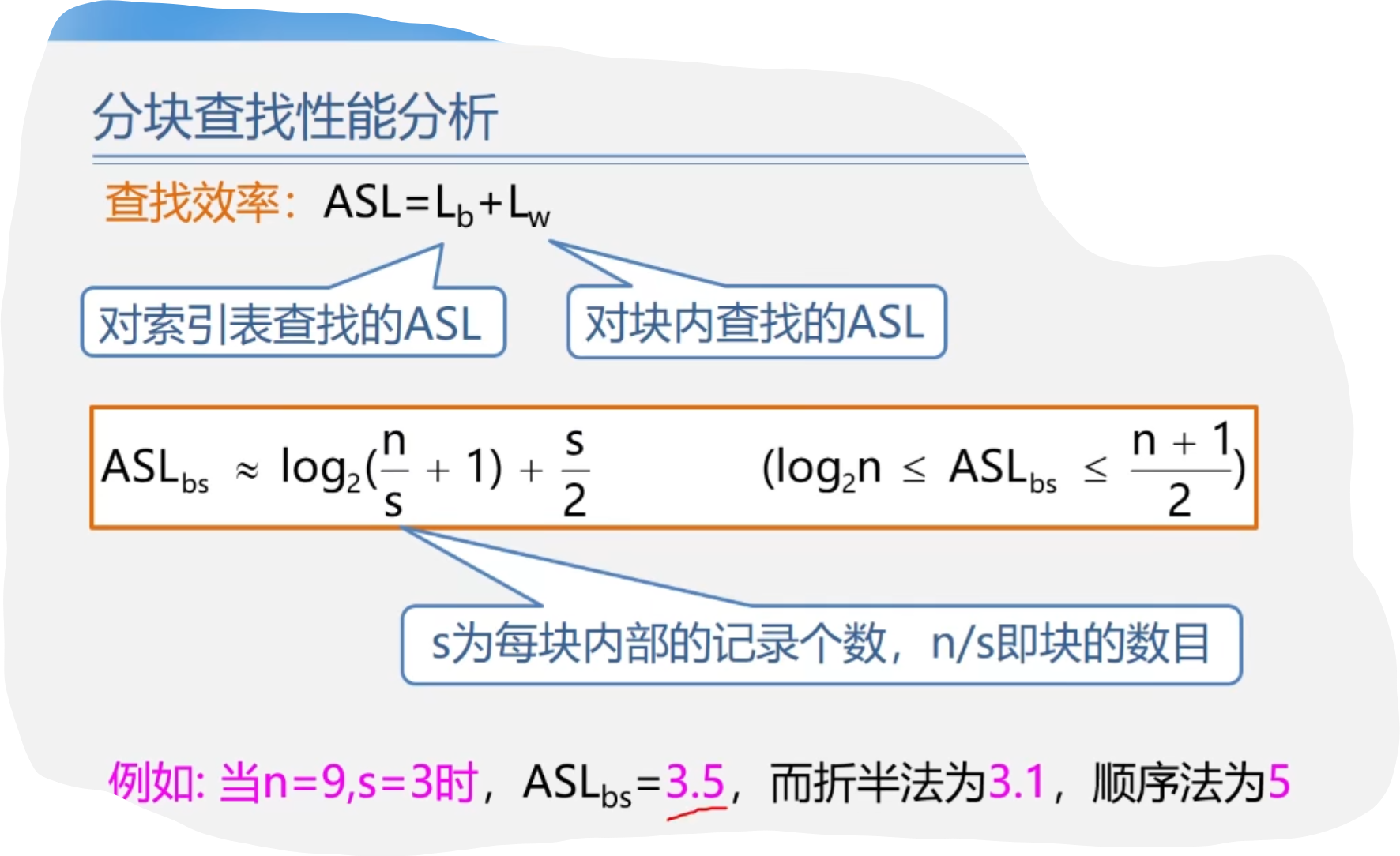
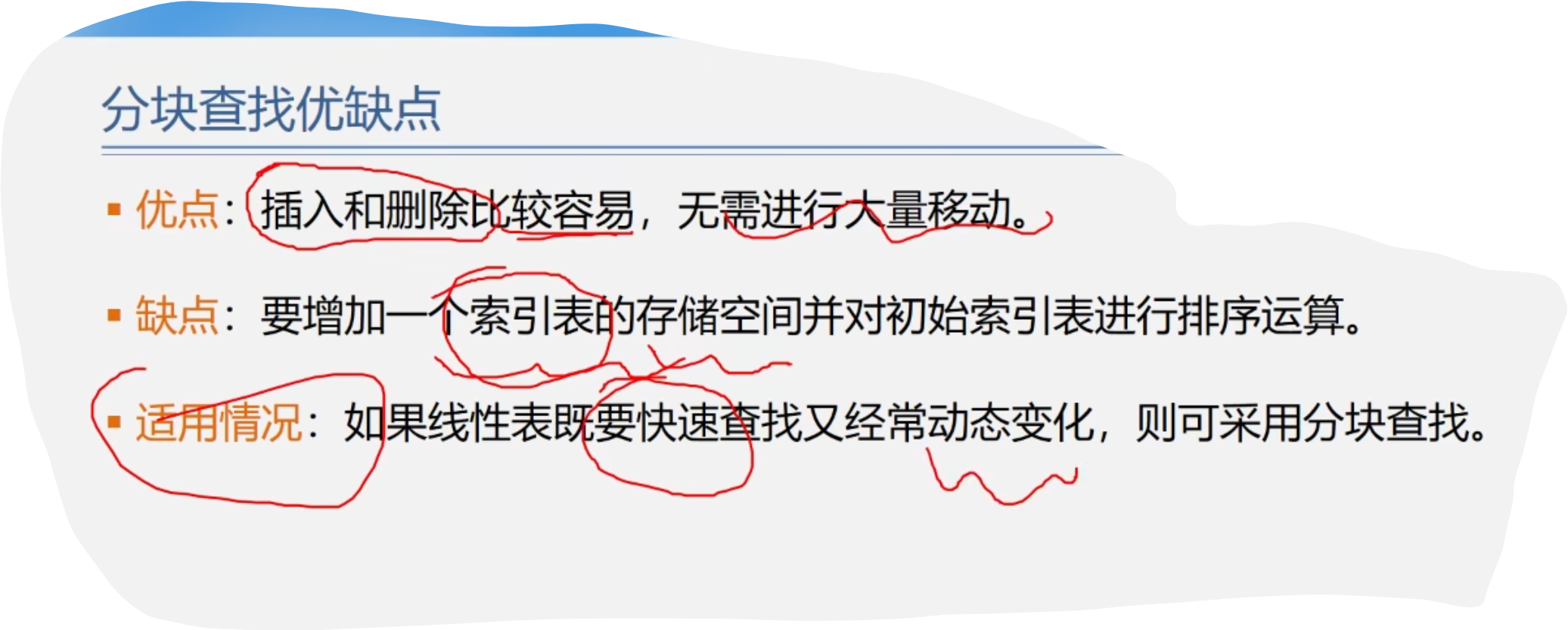
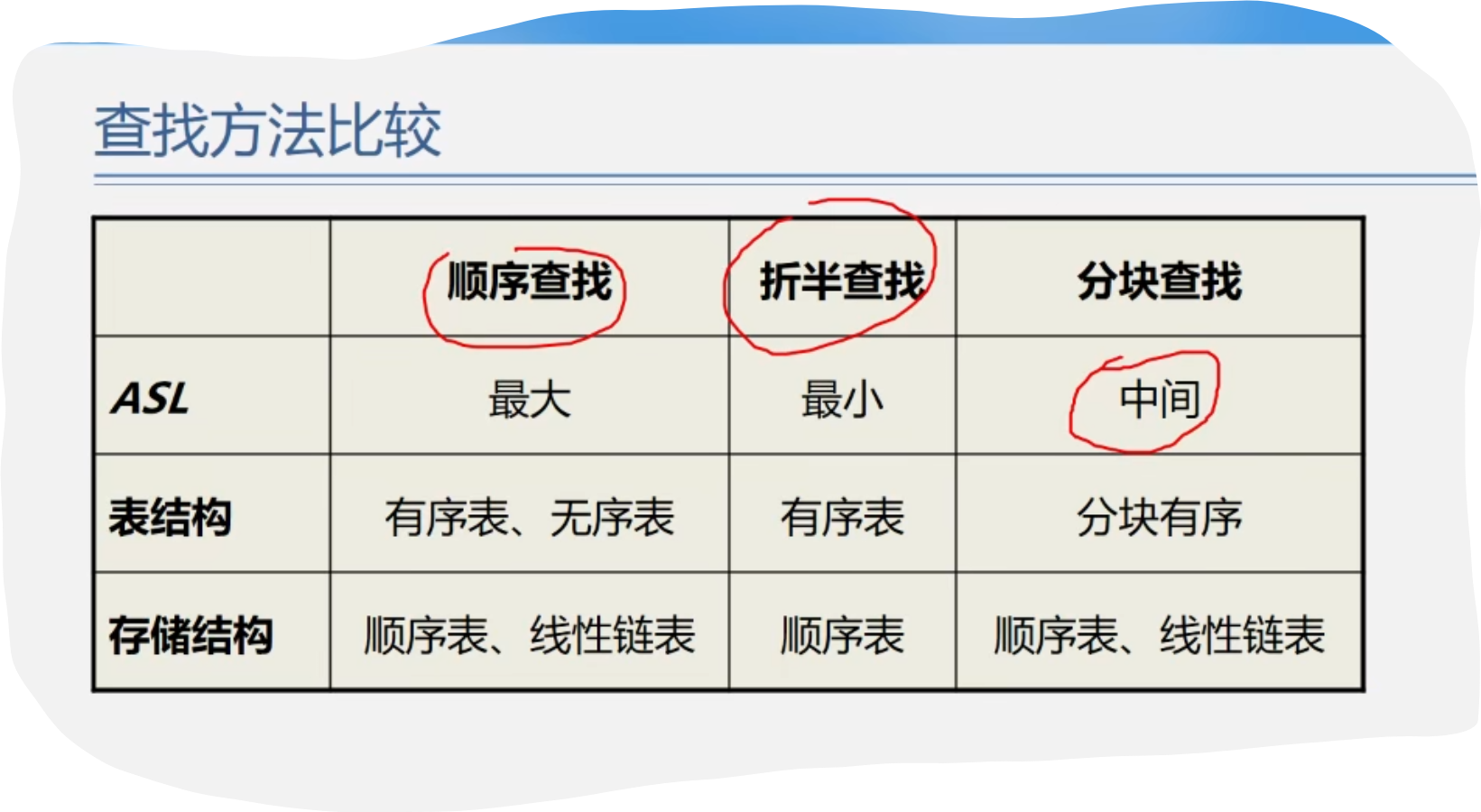
3.树表的查找
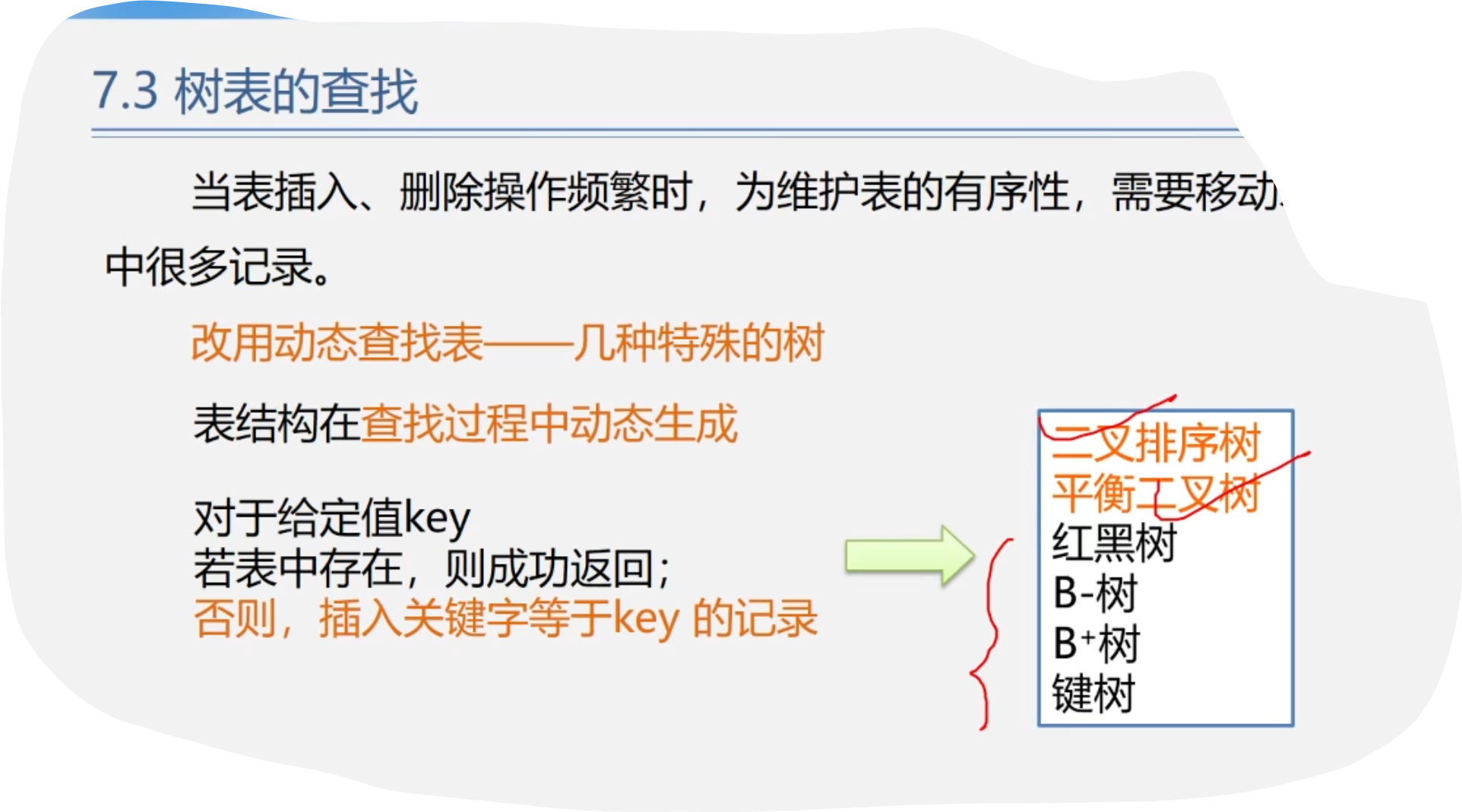
1.二叉排序树
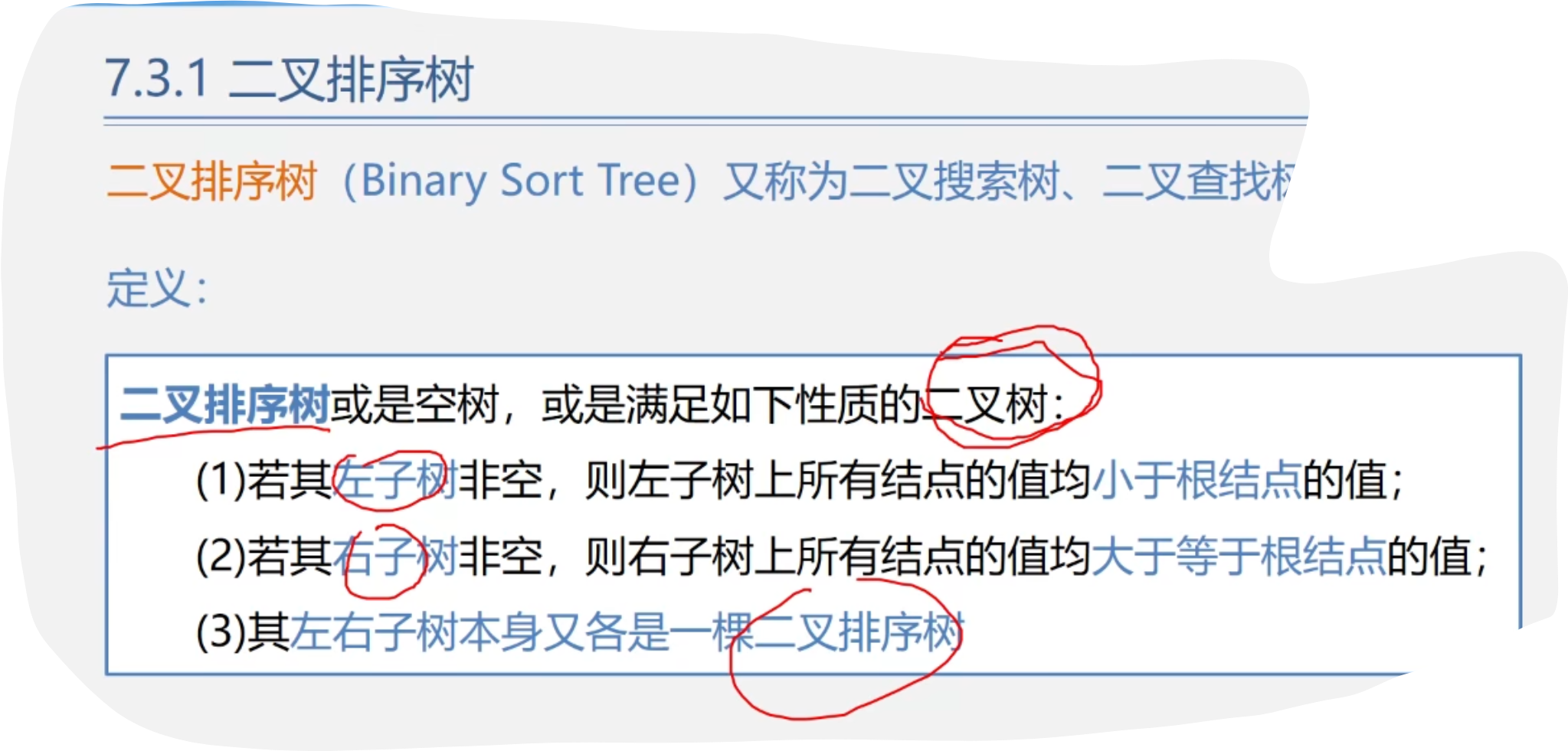
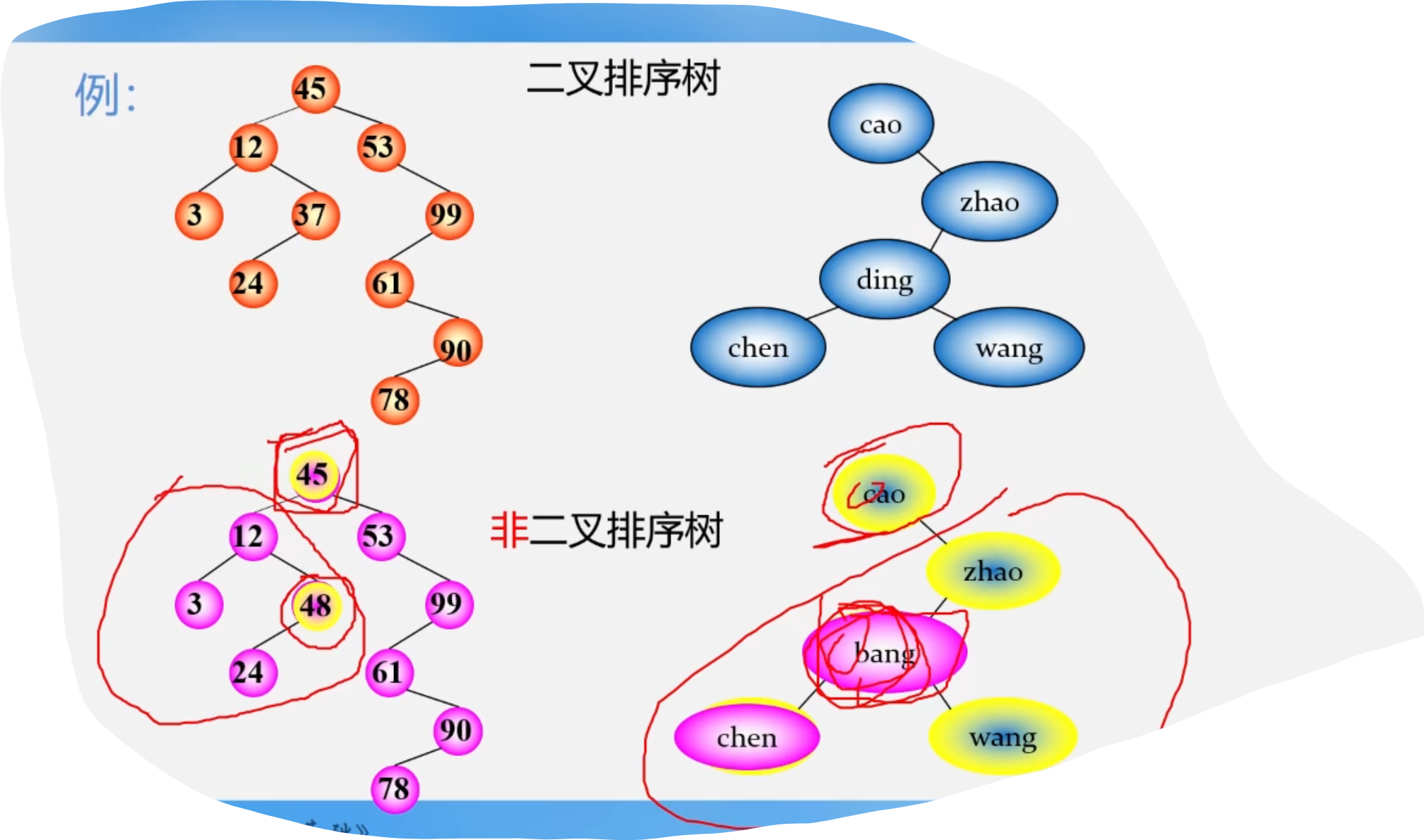
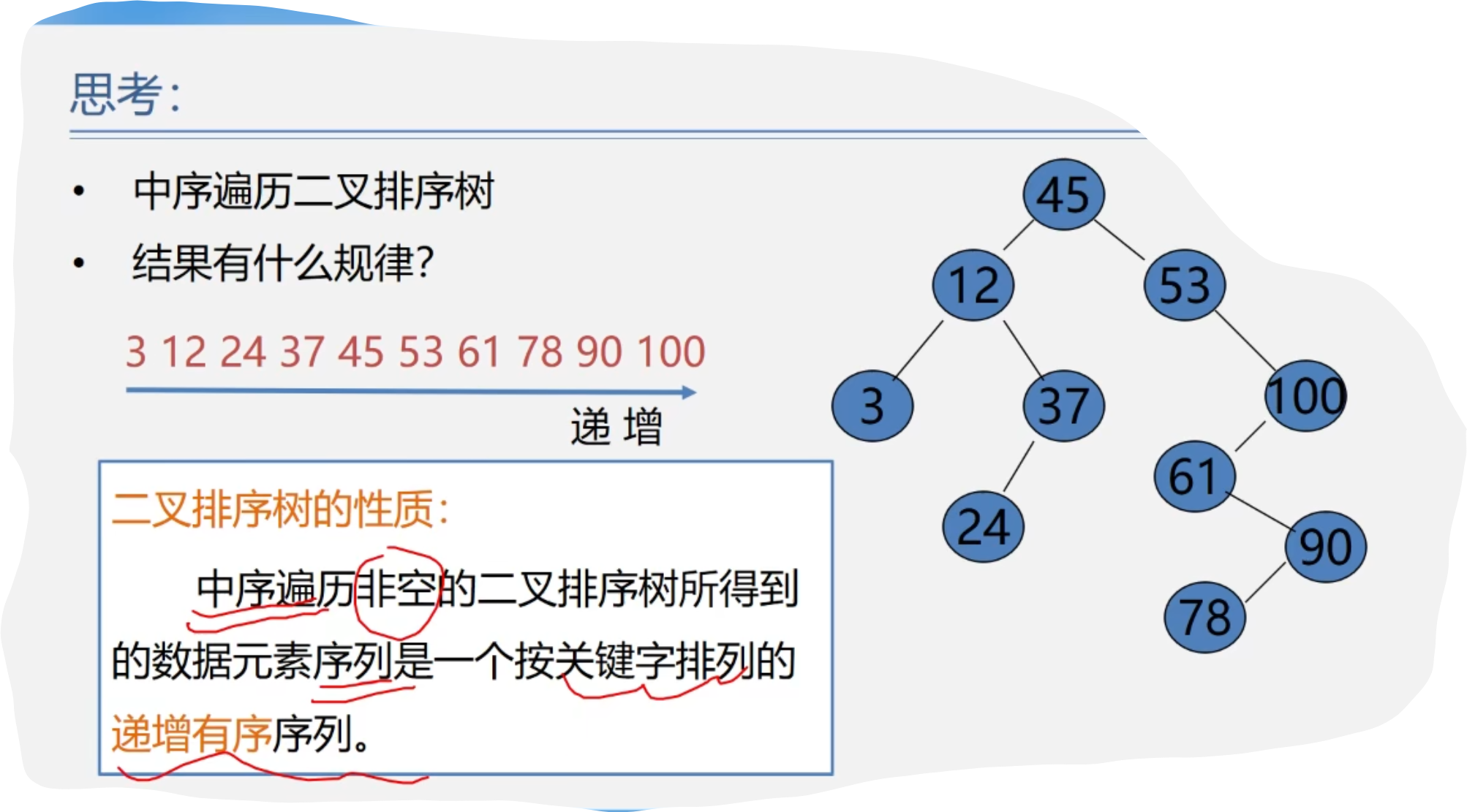
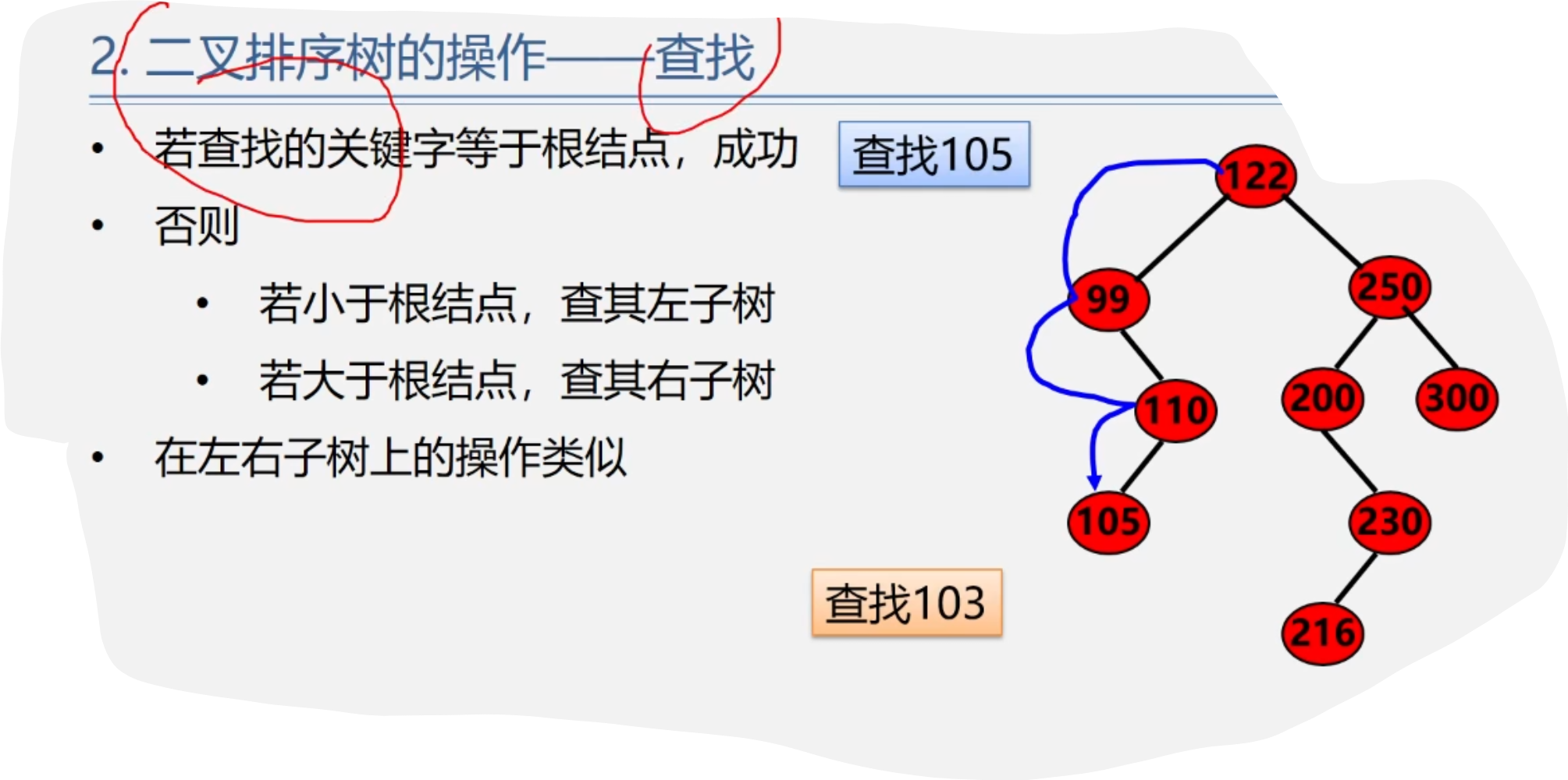
1.二叉排序树的存储结构
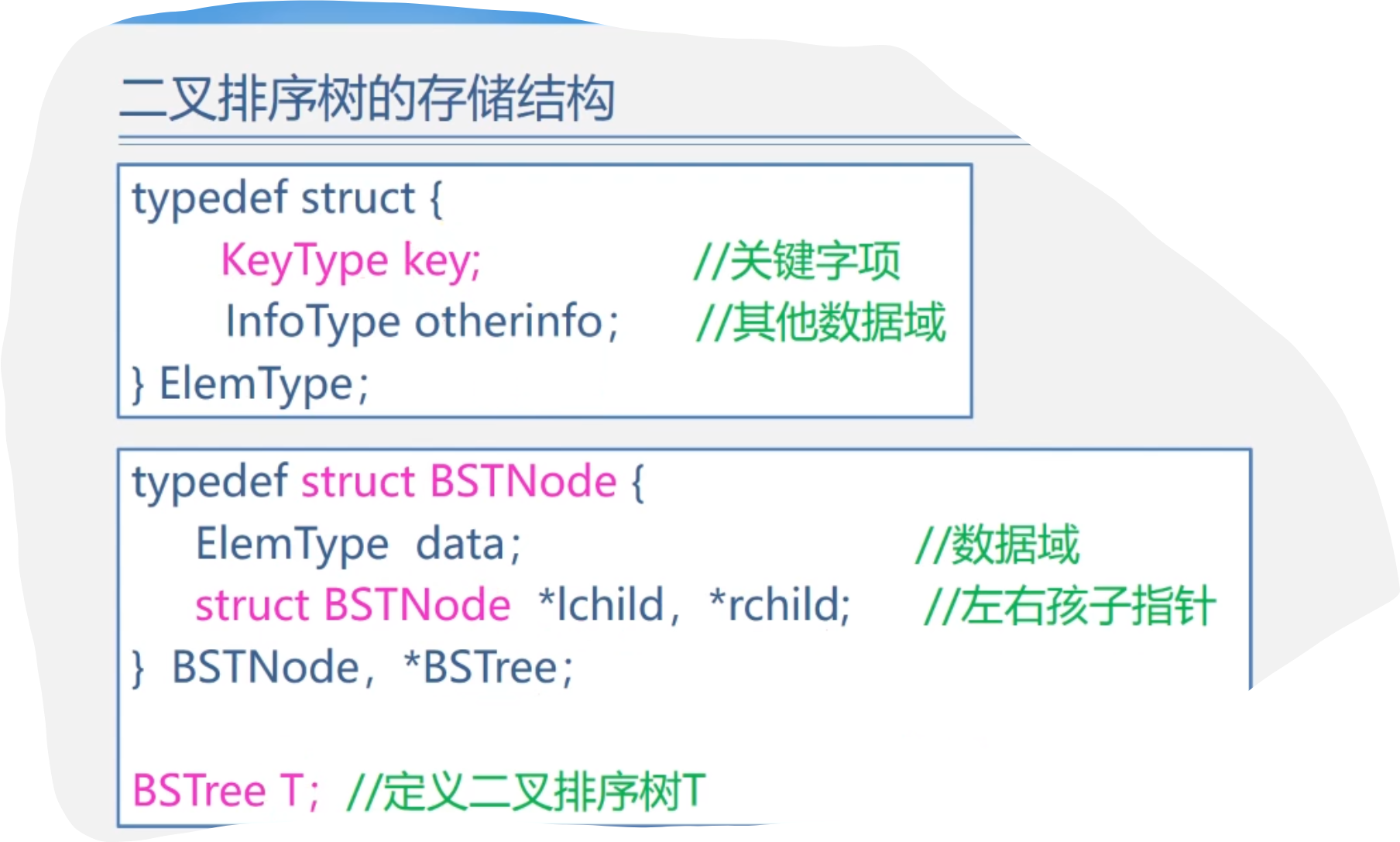
代码示例:
typedef struct {
int key;
}elemtype;
typedef struct bstnode {
elemtype data;
struct bstnode *lchild, *rchild;
}bstnode,*bstree;
bstree t;2.二叉排序树的递归查找
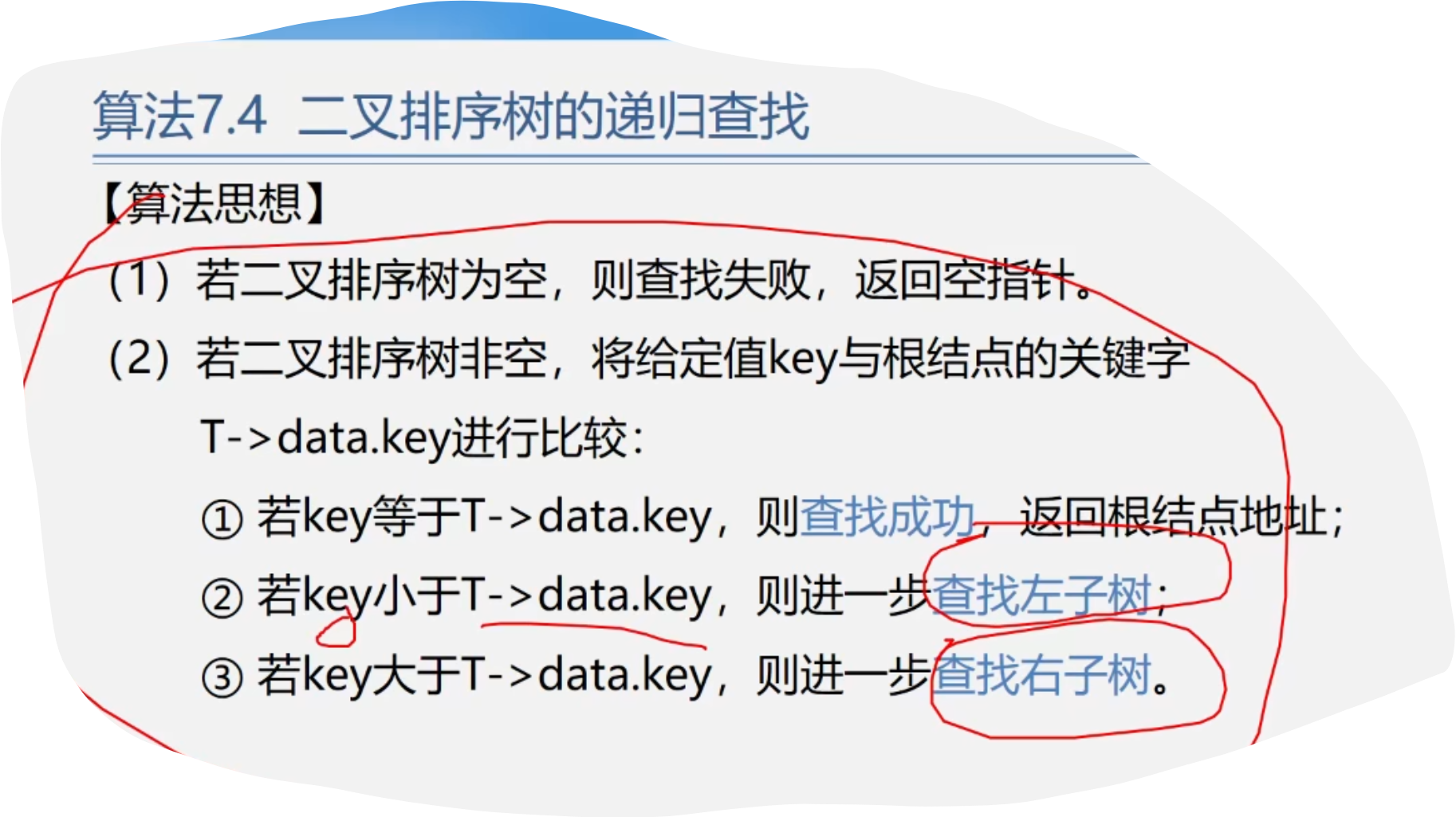
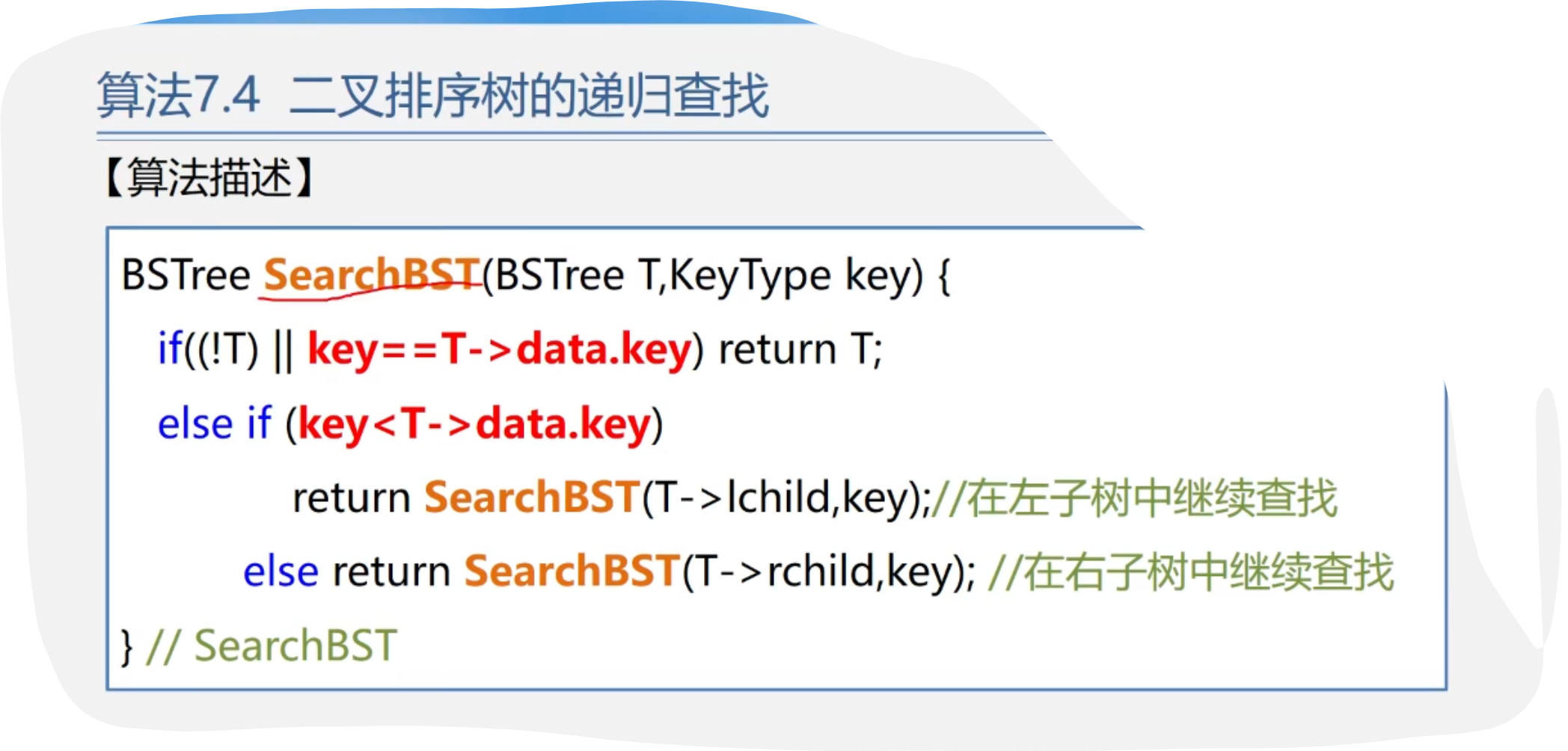
代码示例:
bstree searchbst(bstree t,int key) {
if((!t) || key == t -> data.key) return t;
else if(key < t -> data.key)
return searchbst(t -> lchild,key);
else return searchbst(t -> rchild,key);
}3.二叉排序树的查找分析
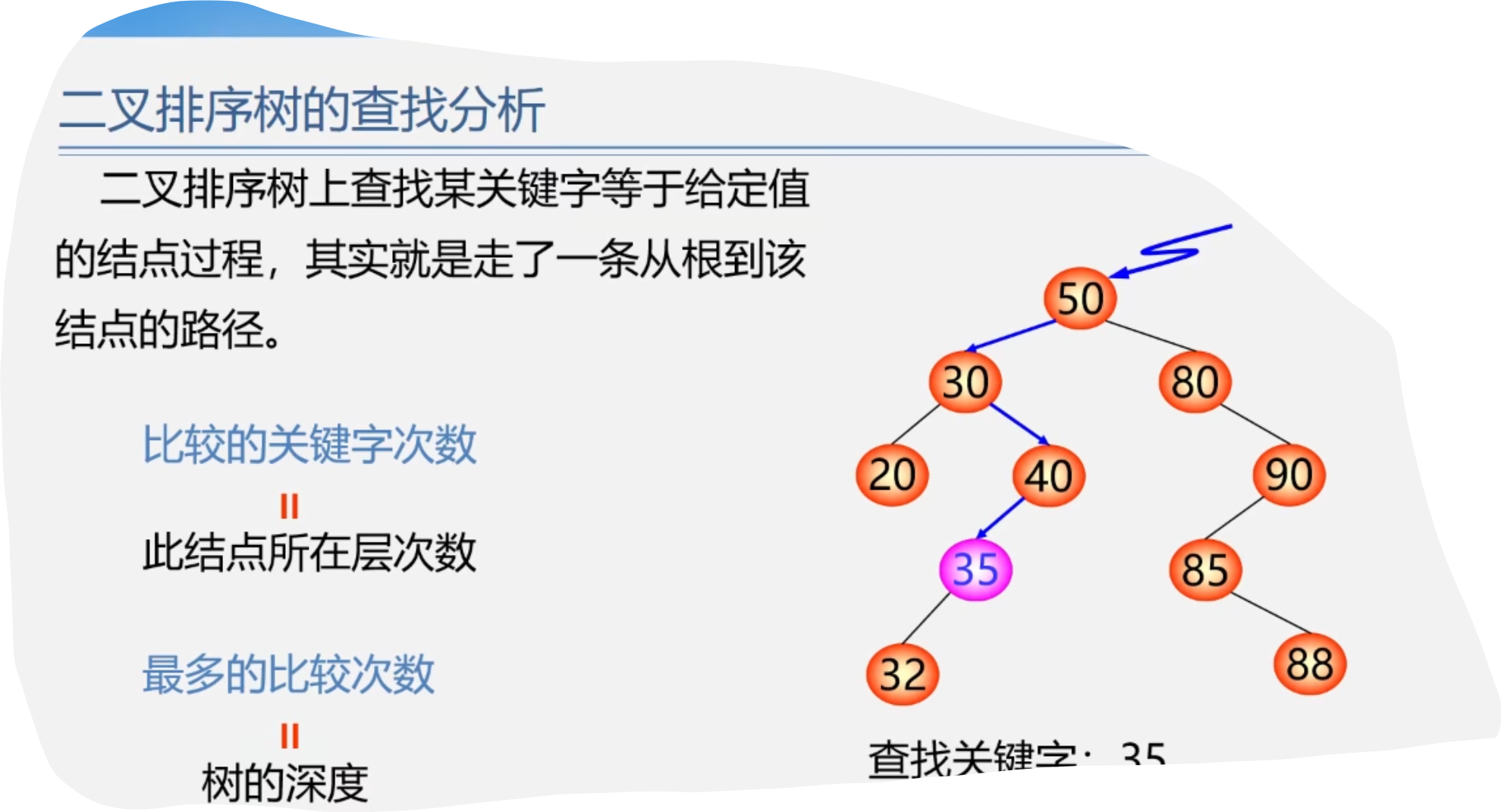
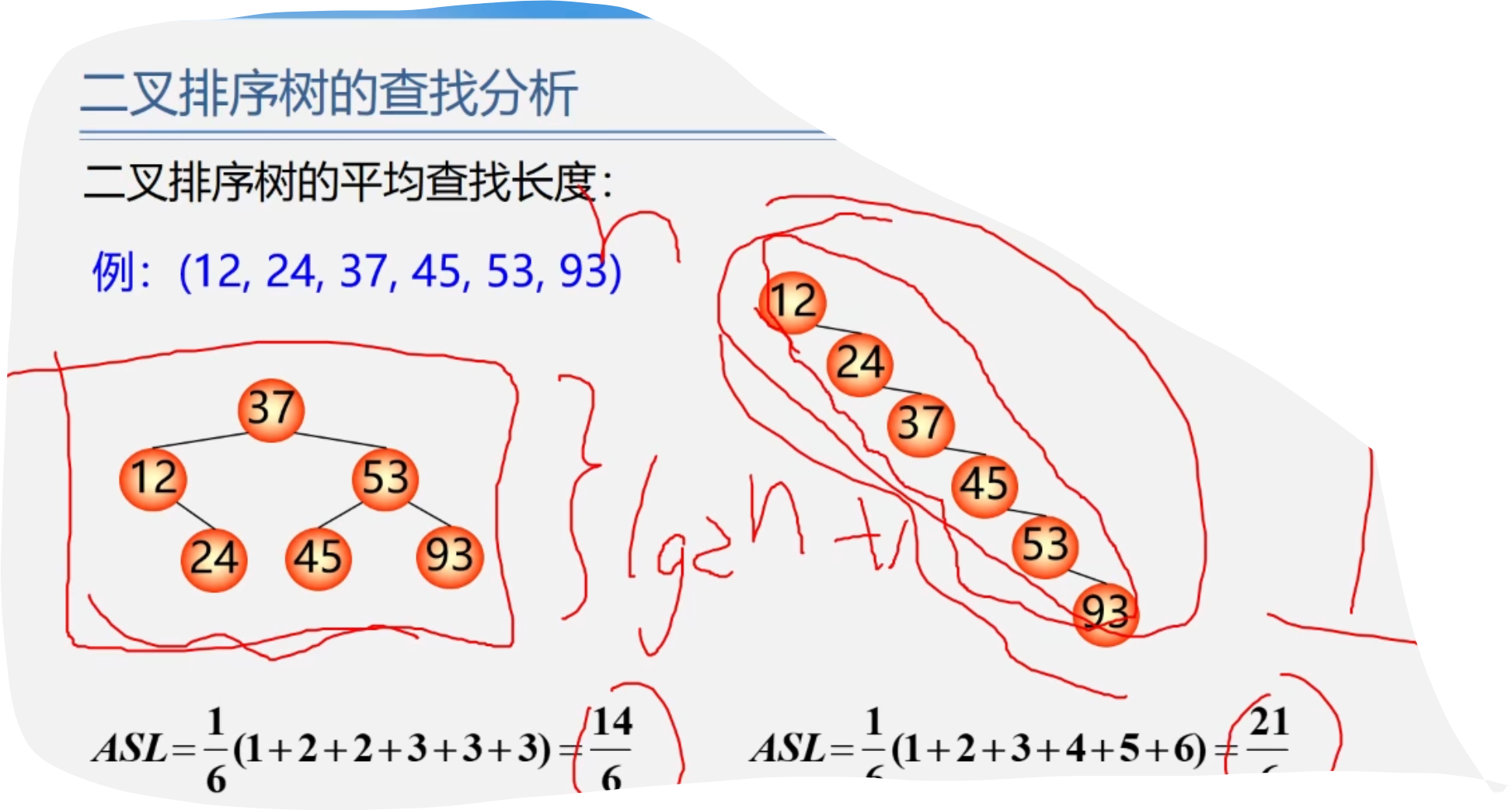
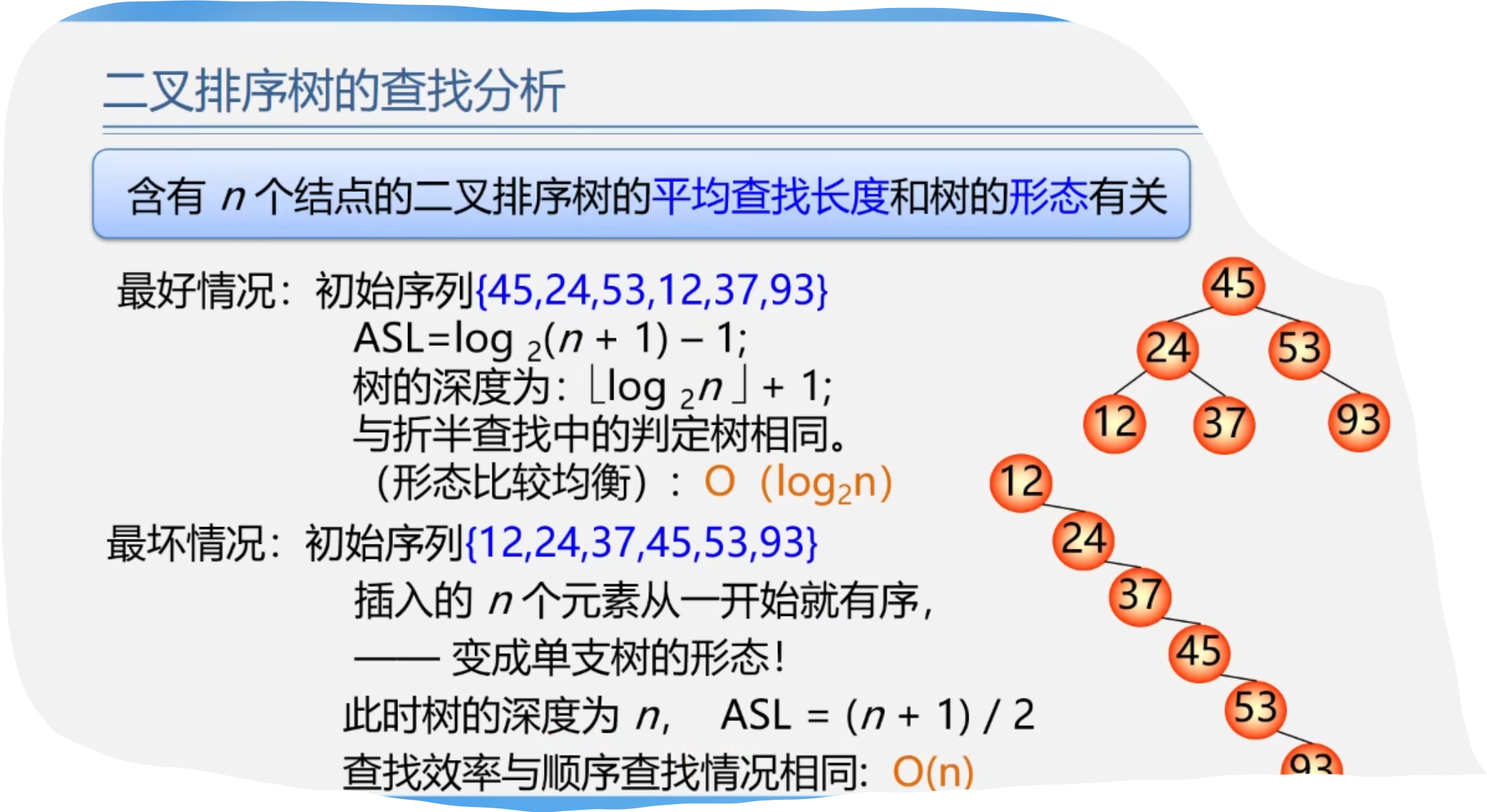
平衡二叉树
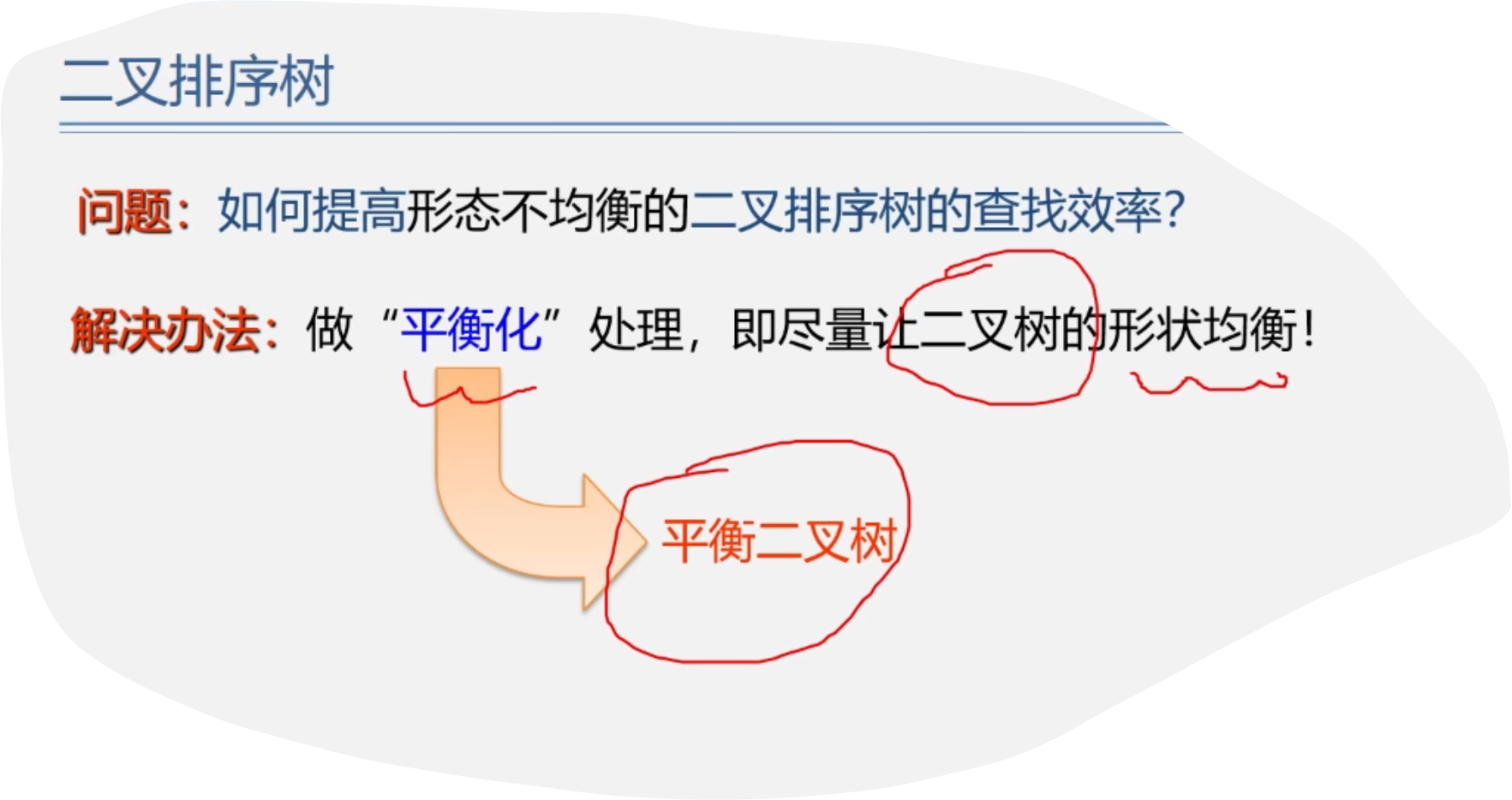
4.二叉排序数的操作-插入
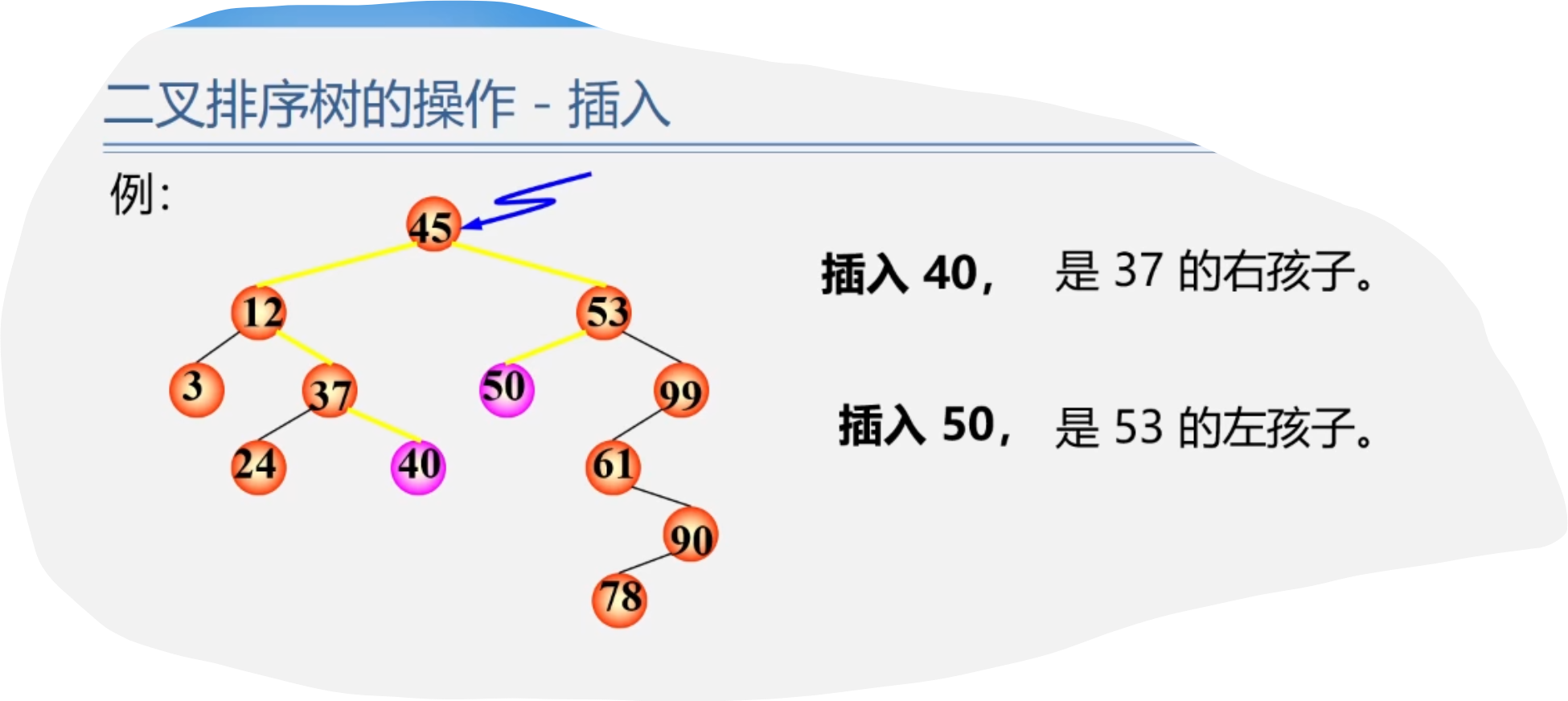
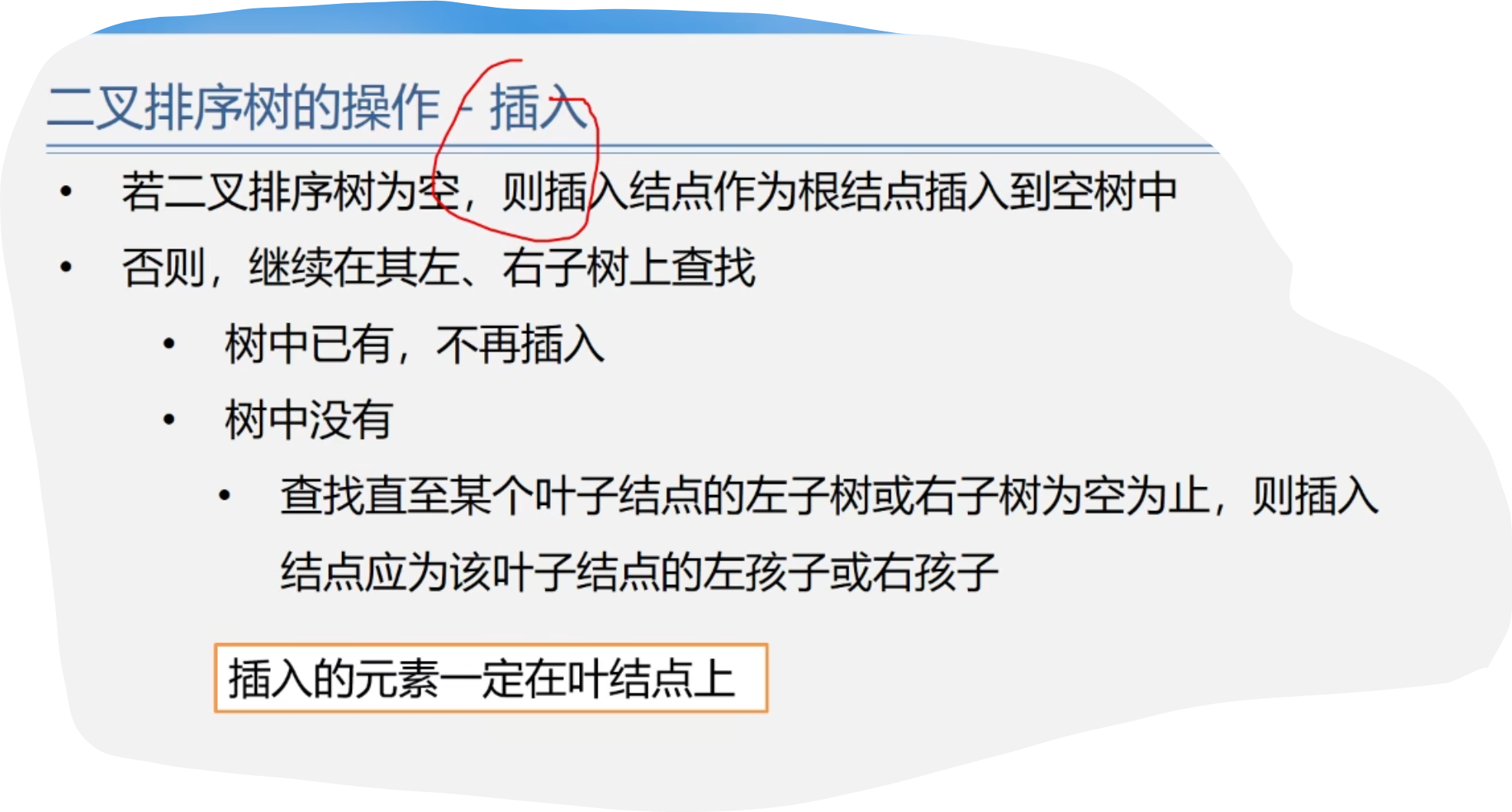
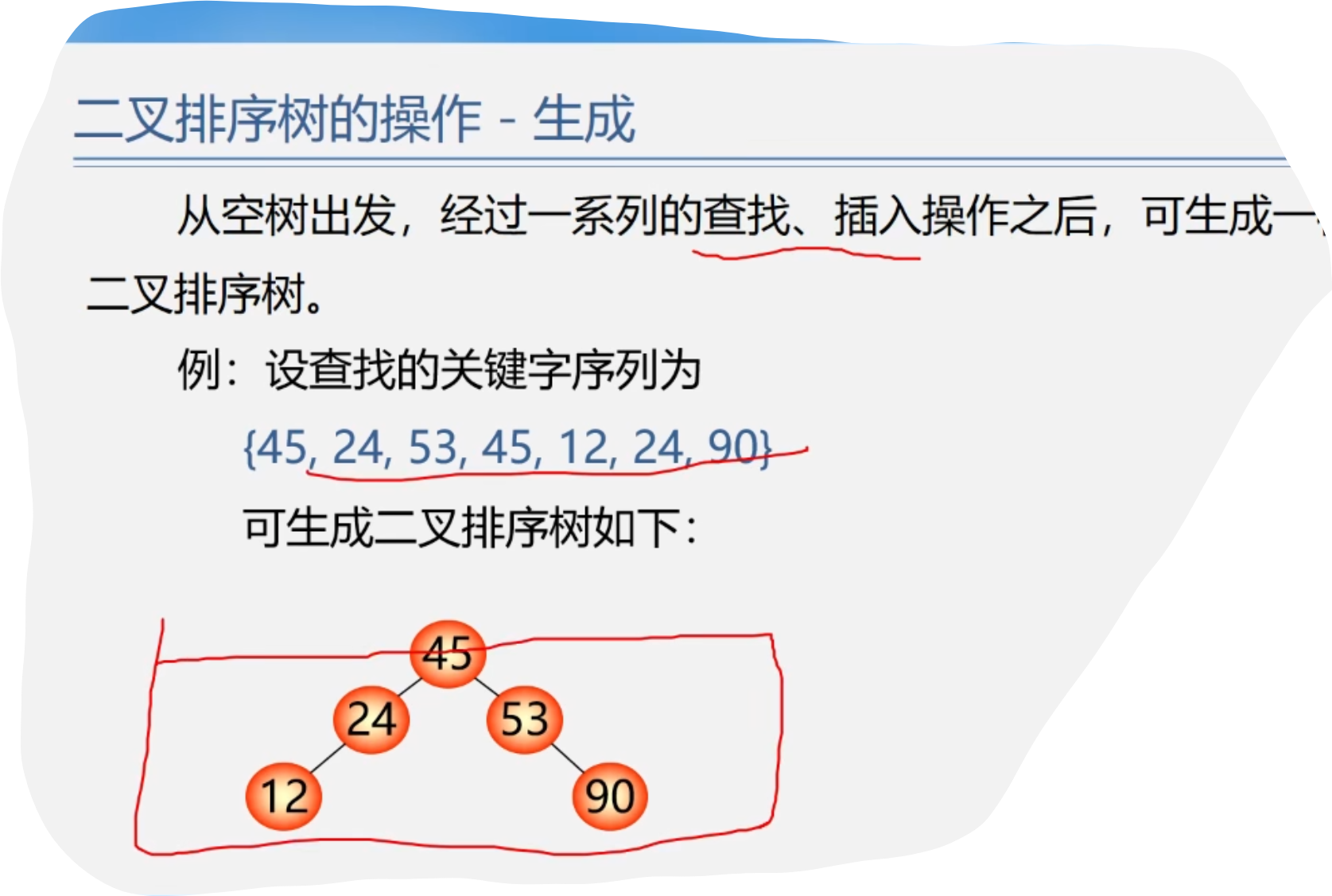
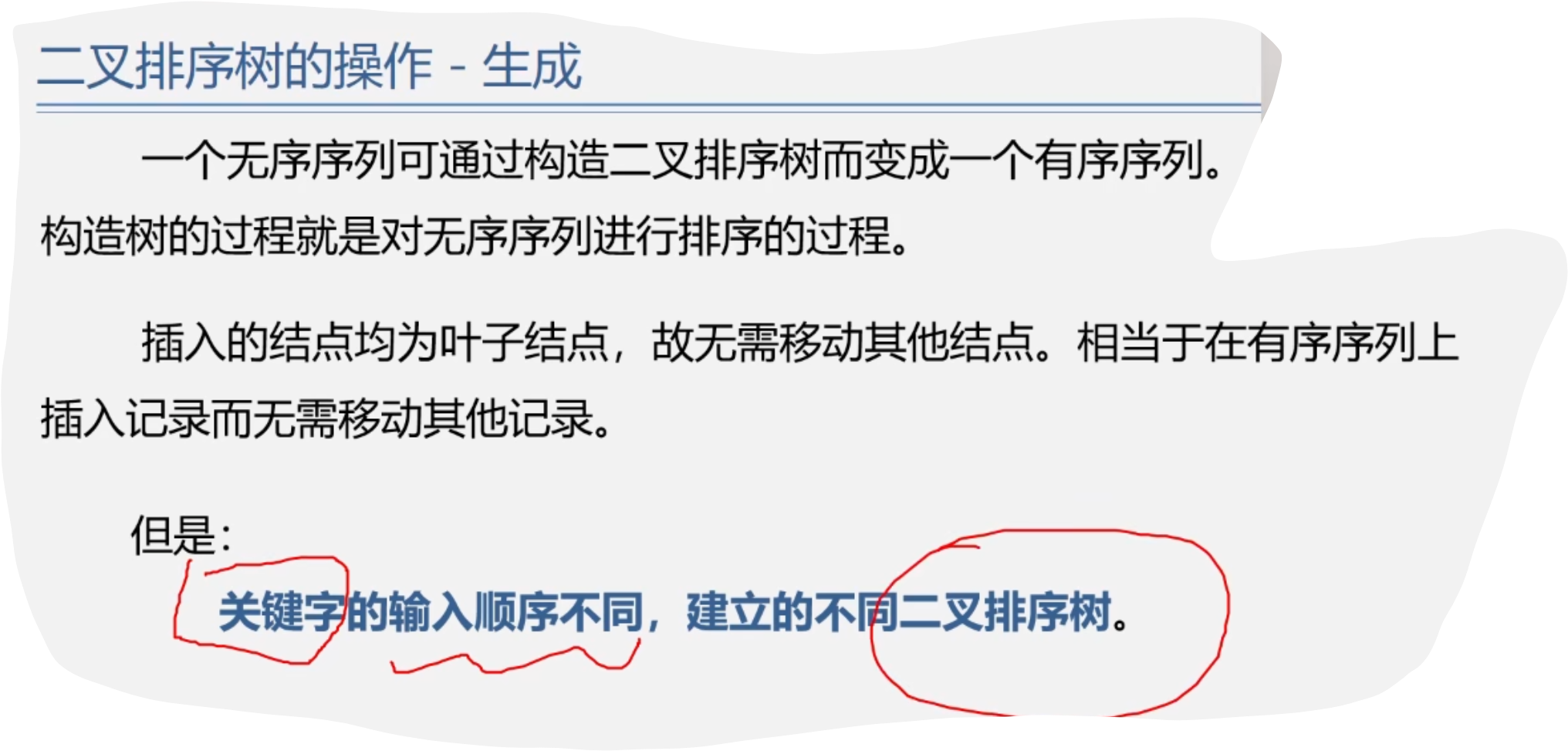
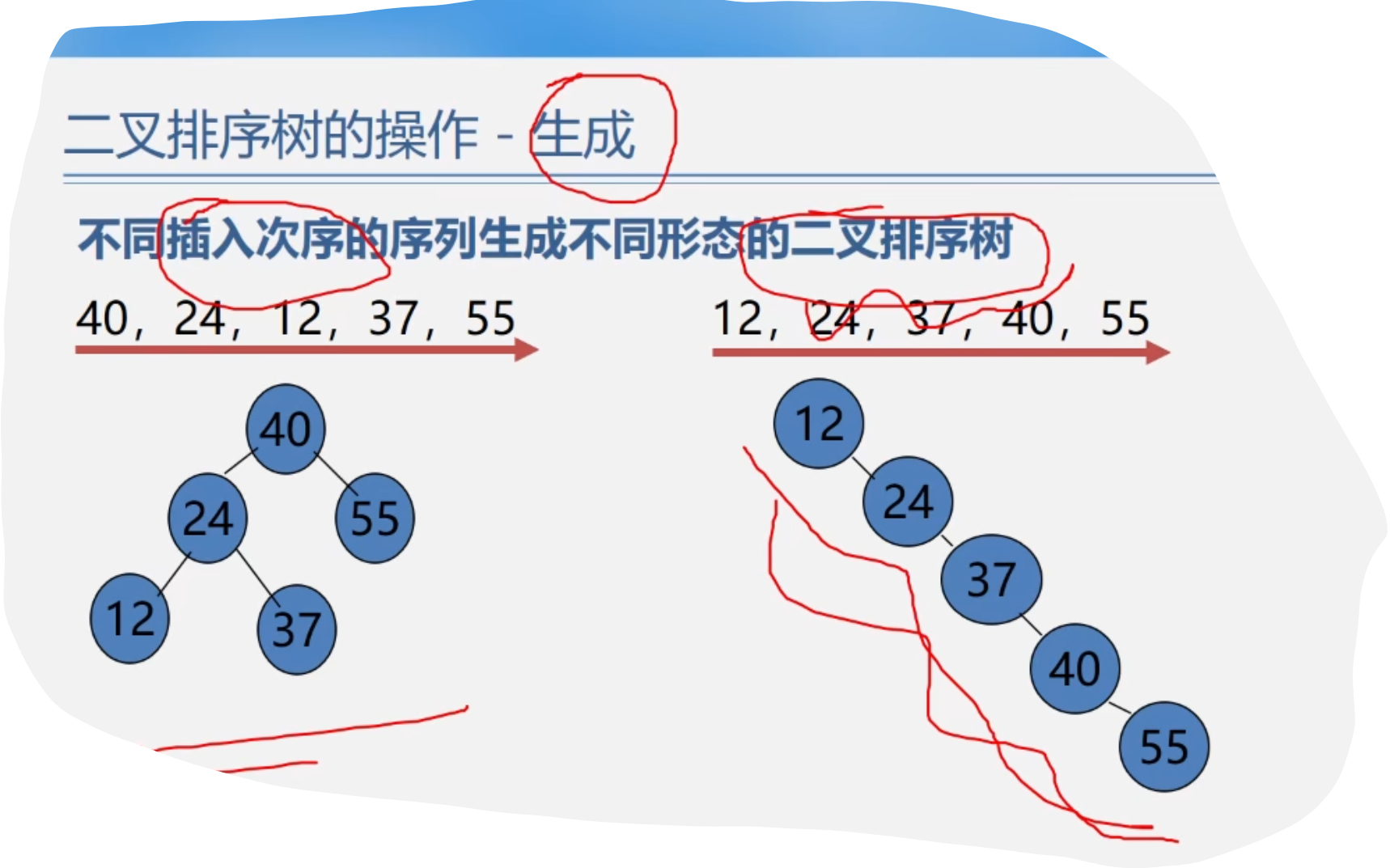
5.二叉排序树的操作-删除
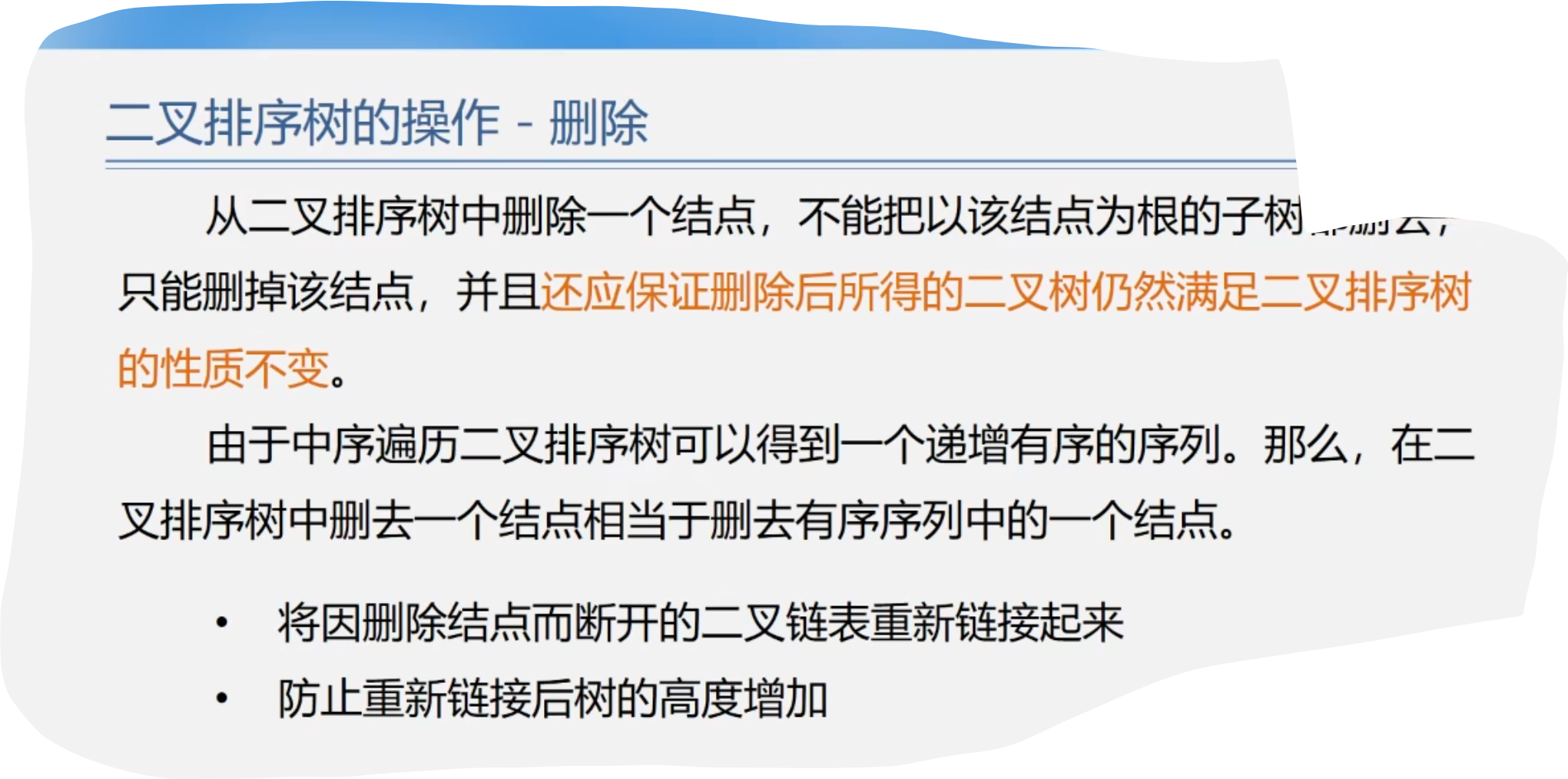
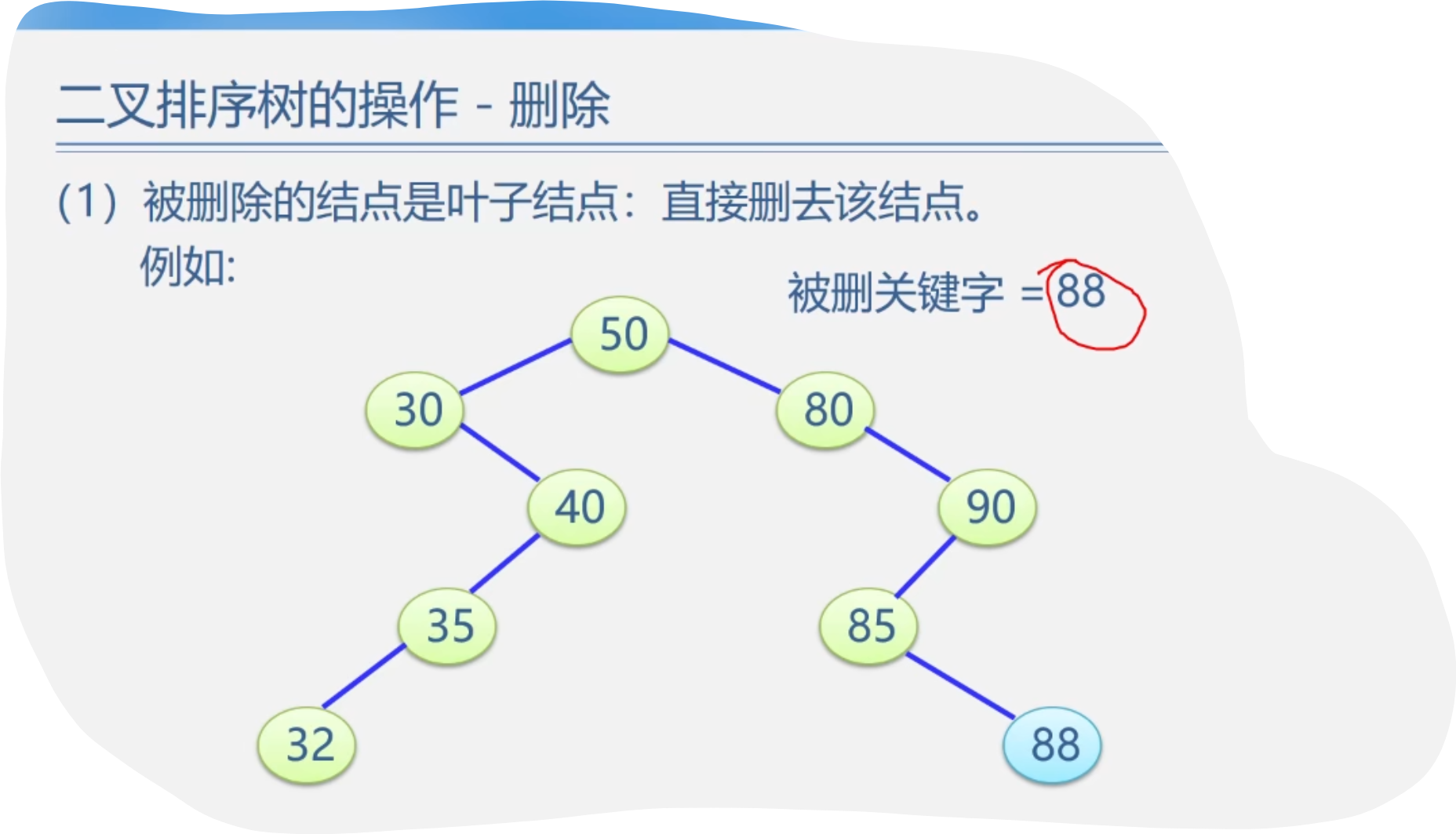
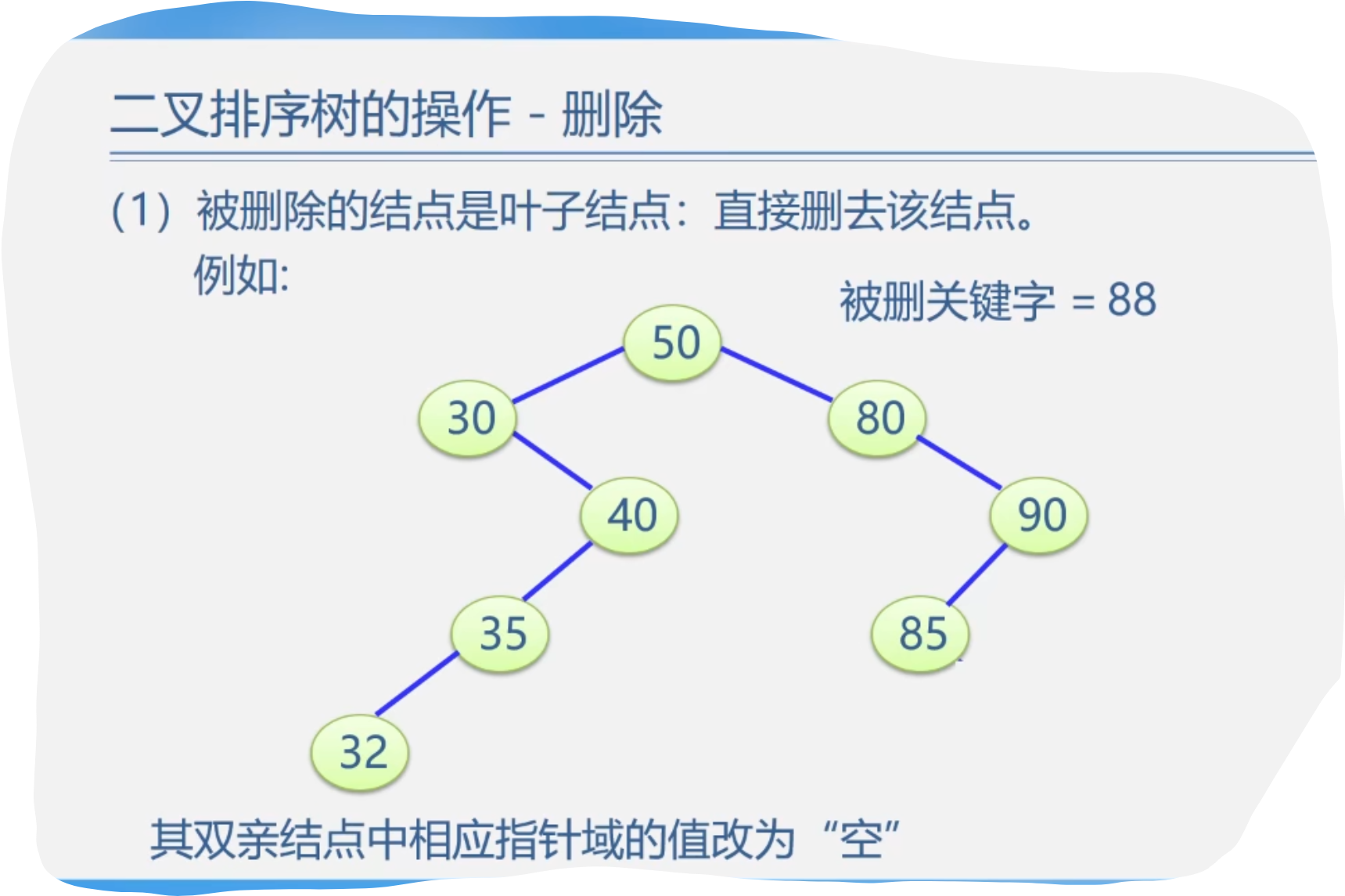
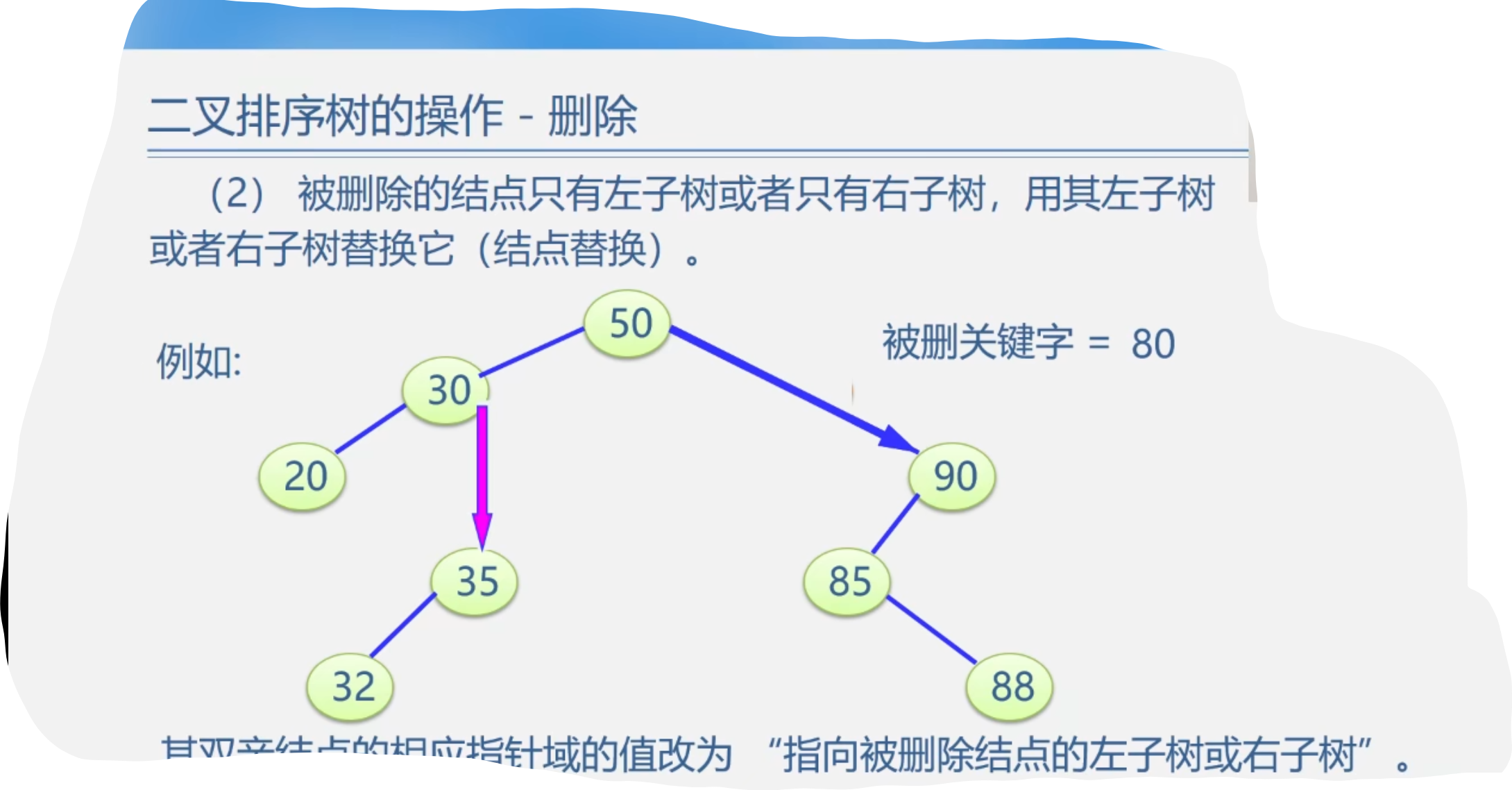
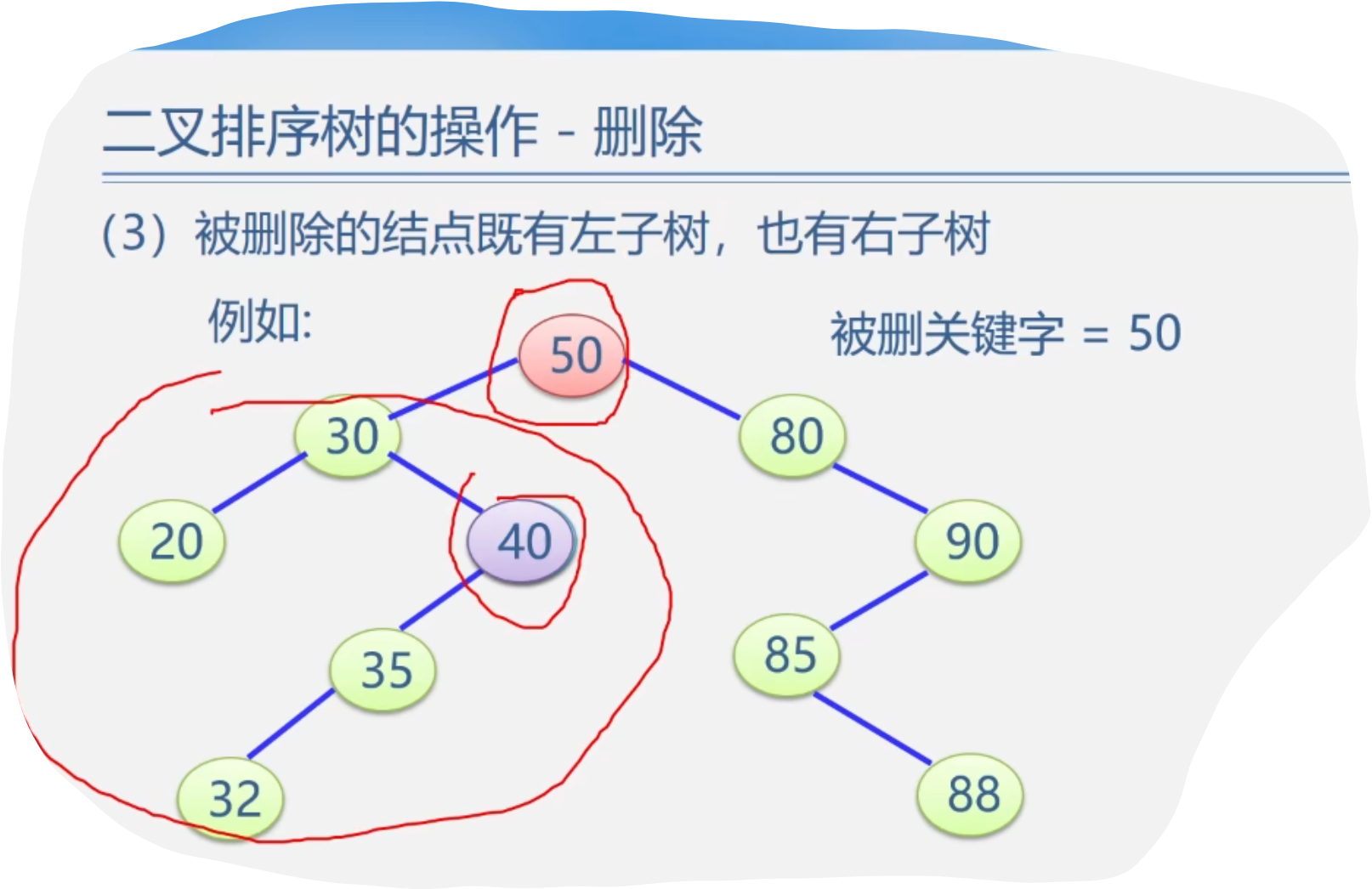
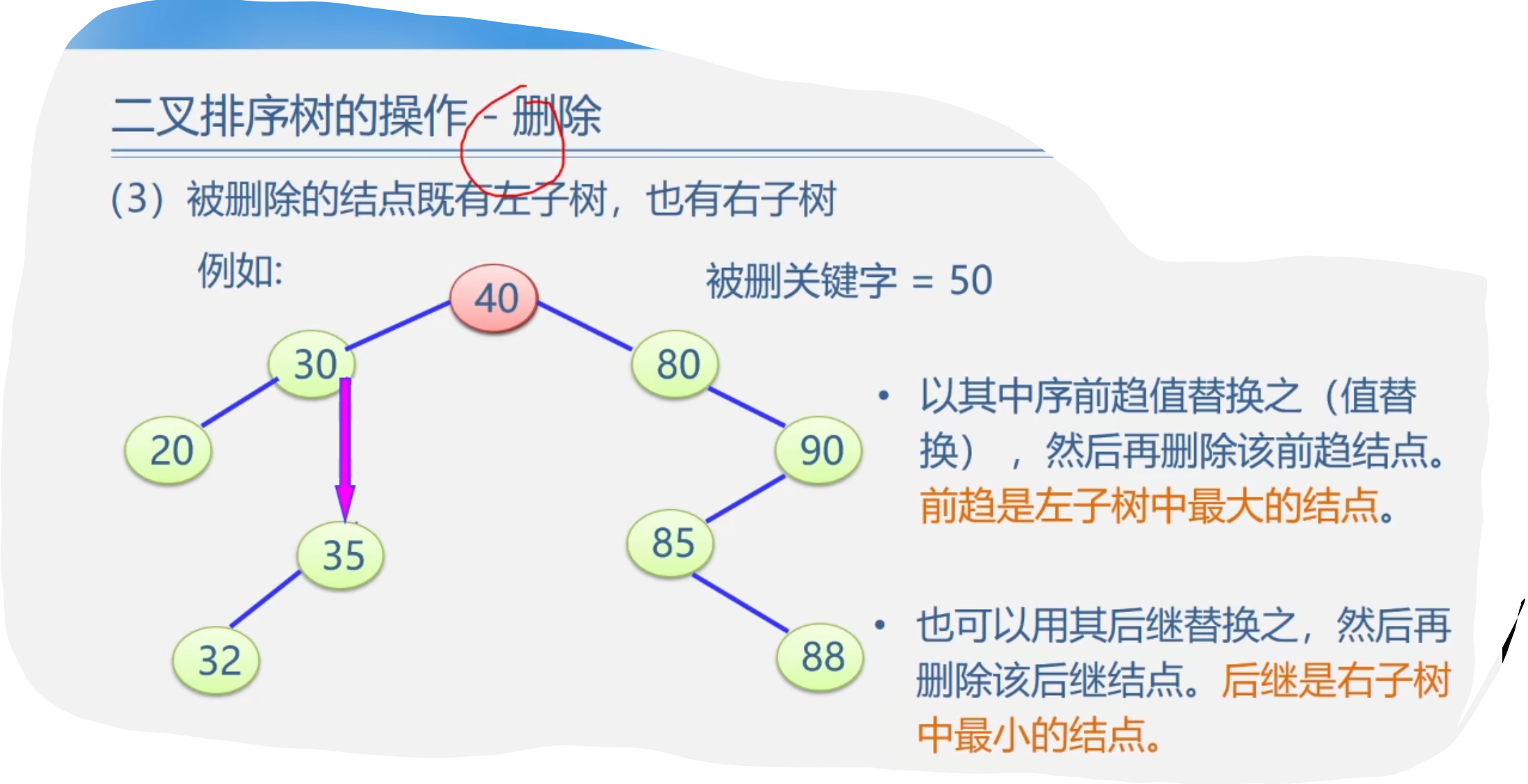
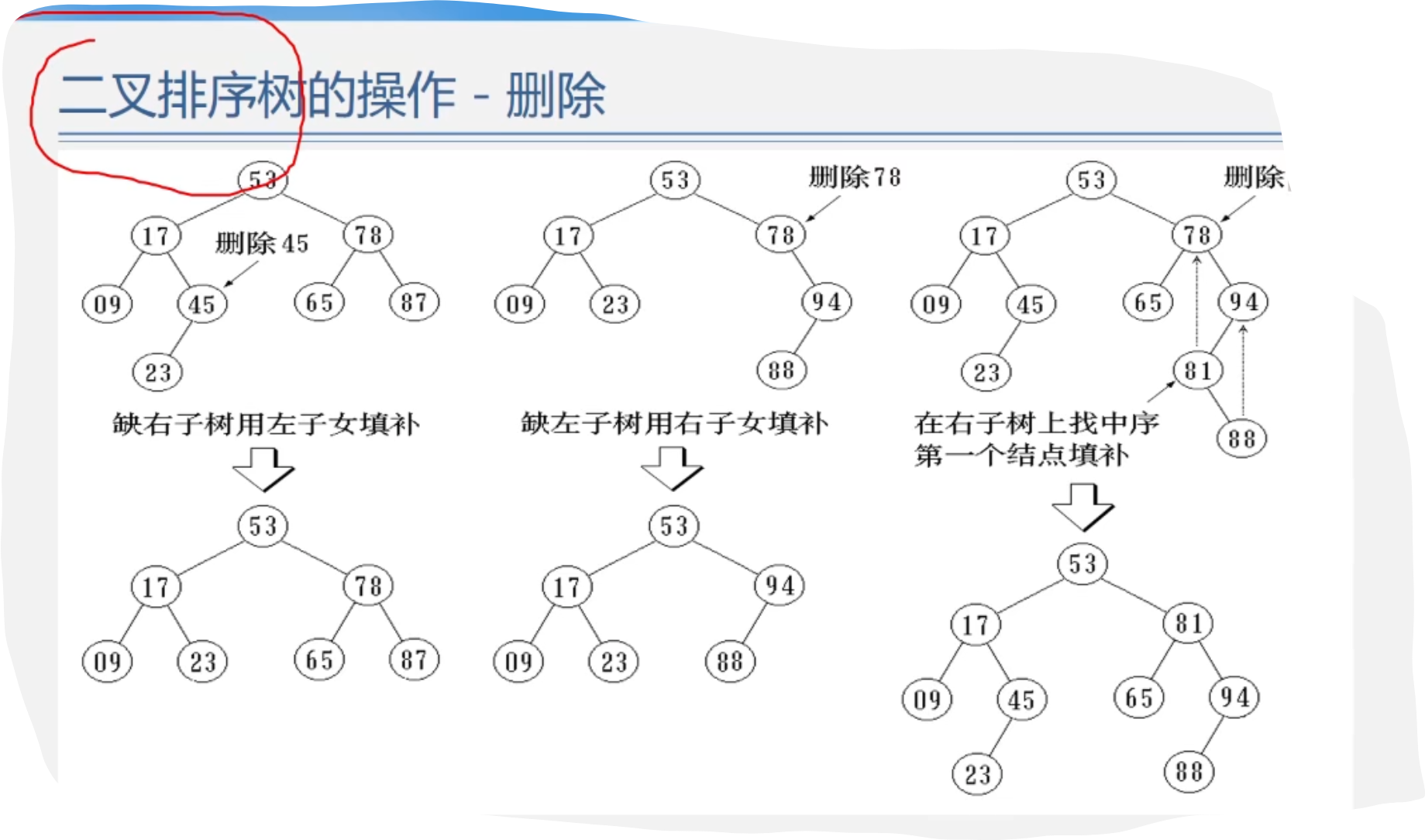
4.总的代码
#include<bits/stdc++.h>
using namespace std;
typedef struct {
int key;
}elem;
typedef struct {
elem *r;
int len;
}sstable;
sstable st;
int search_seq(sstable st,int key) {
for(int i = st.len; i >= 1; --i) {
if(st.r[i].key == key) return i;
return 0;
}
}
int Search_seq(sstable st,int key) {
st.r[0].key = key;
int i;
for(i = st.len; st.r[i].key != key; --i);
return i;
}
int search_bin(sstable st,int key) {
int low = 1;
int high = st.len;
while(low <= high) {
int mid = (low + high) / 2;
if(st.r[mid].key == key) return mid;
else if(key < st.r[mid].key)
high = mid - 1;
else low = mid + 1;
}
return 0;
}
typedef struct {
int key;
}elemtype;
typedef struct bstnode {
elemtype data;
struct bstnode *lchild, *rchild;
}bstnode,*bstree;
bstree t;
bstree searchbst(bstree t,int key) {
if((!t) || key == t -> data.key) return t;
else if(key < t -> data.key)
return searchbst(t -> lchild,key);
else return searchbst(t -> rchild,key);
}
int main() {
return 0;
}


















